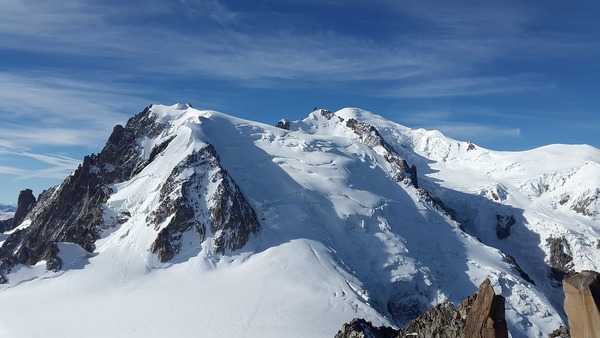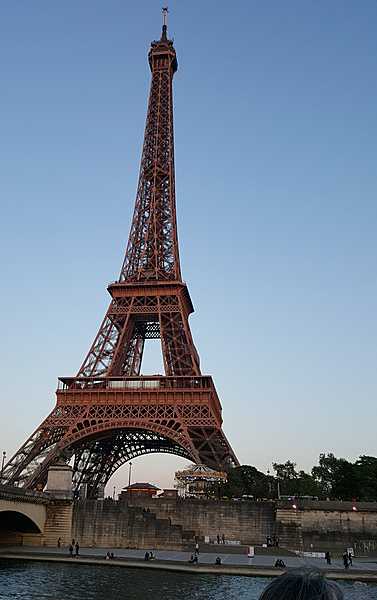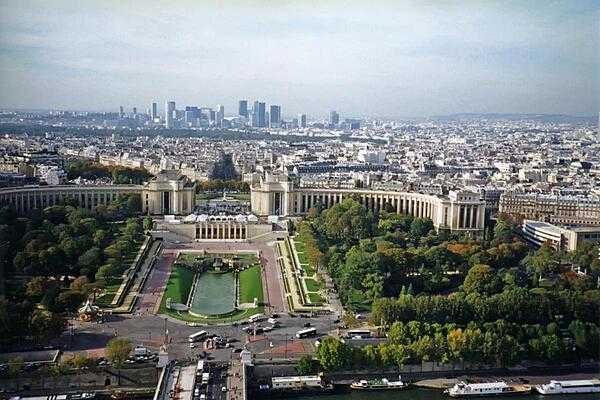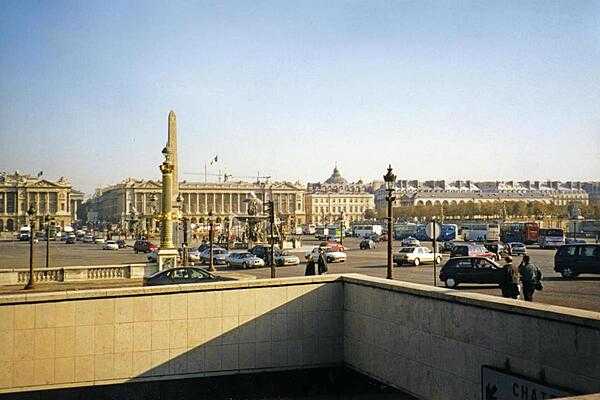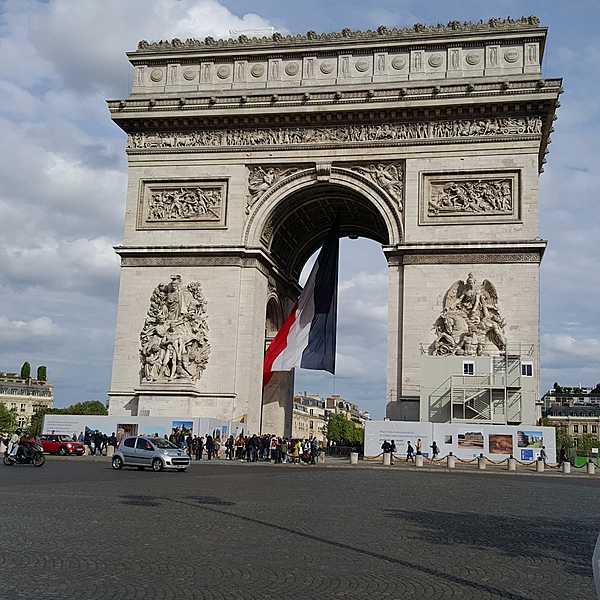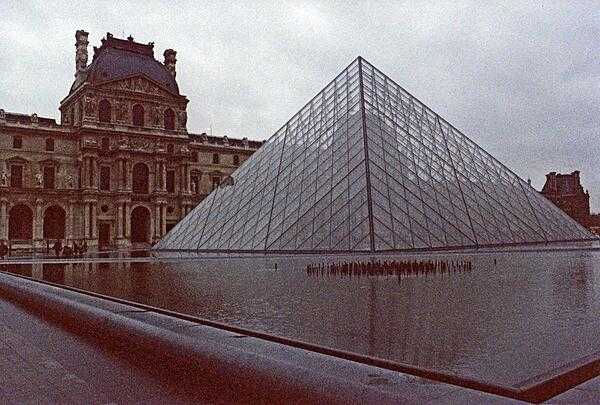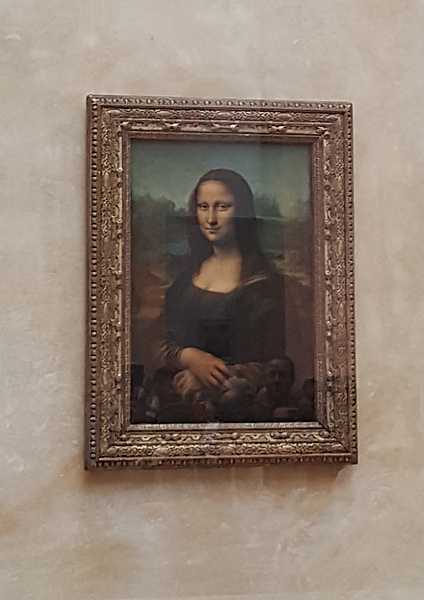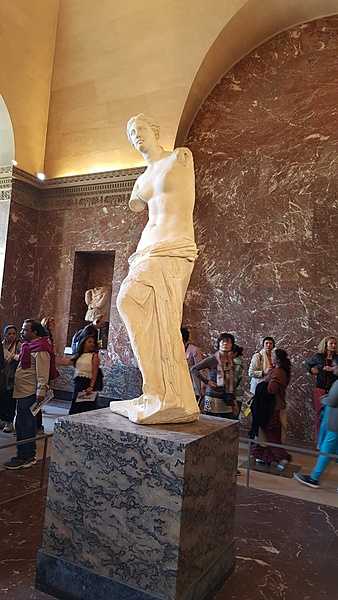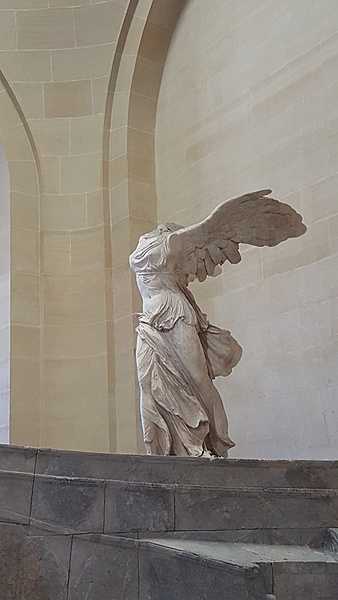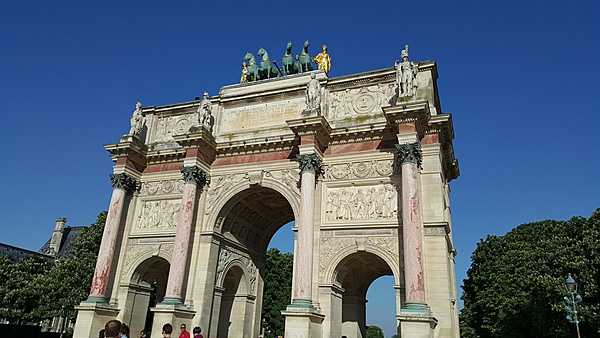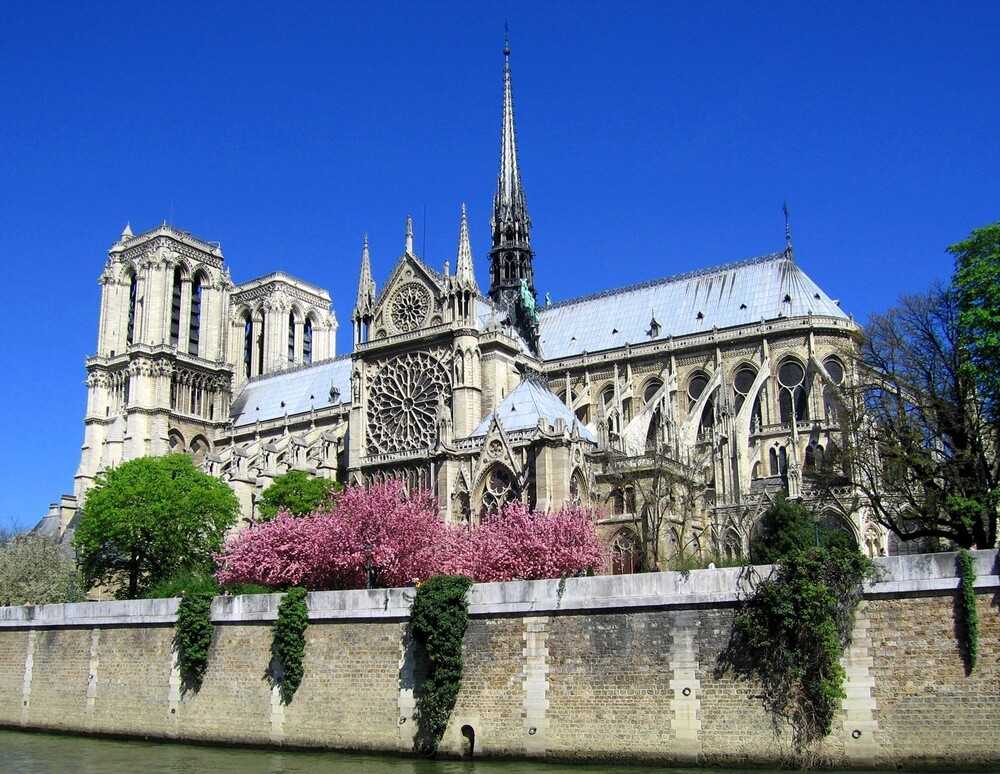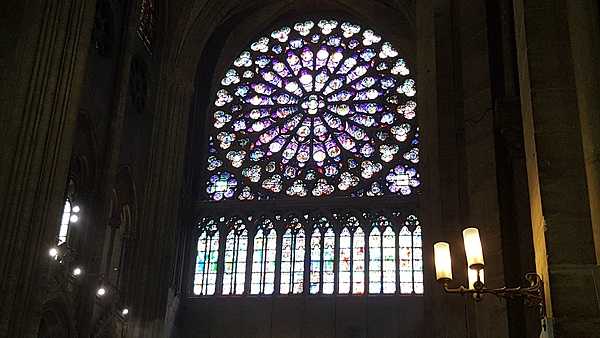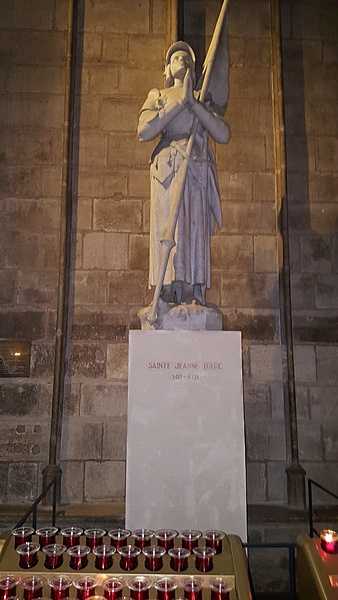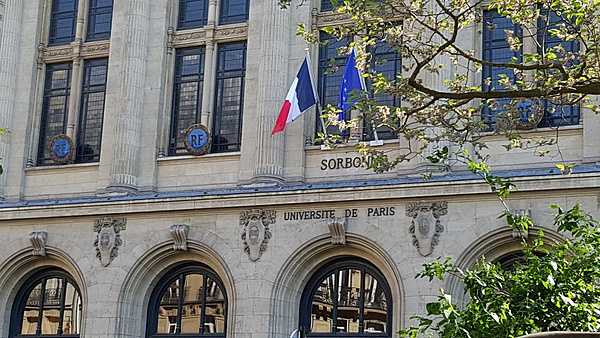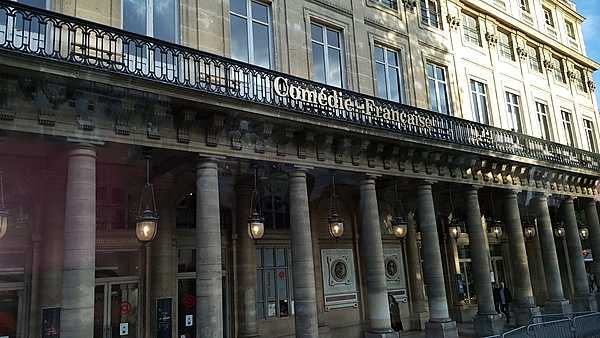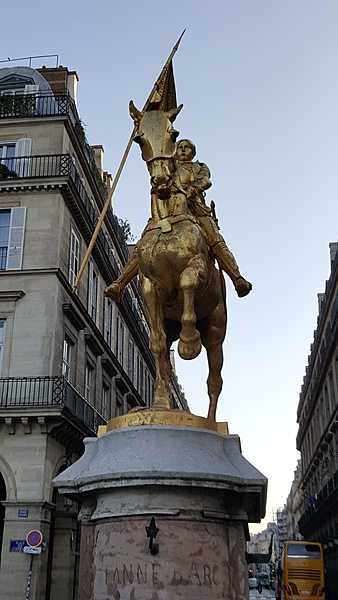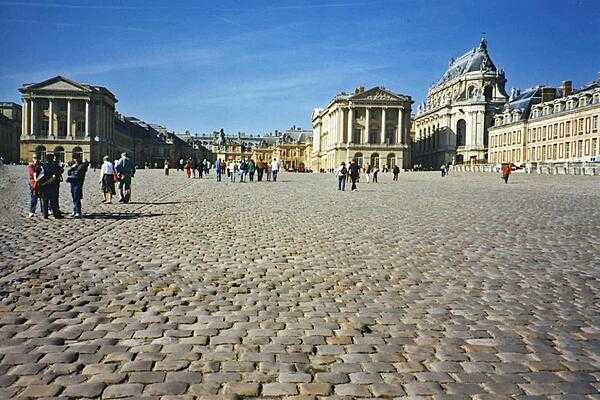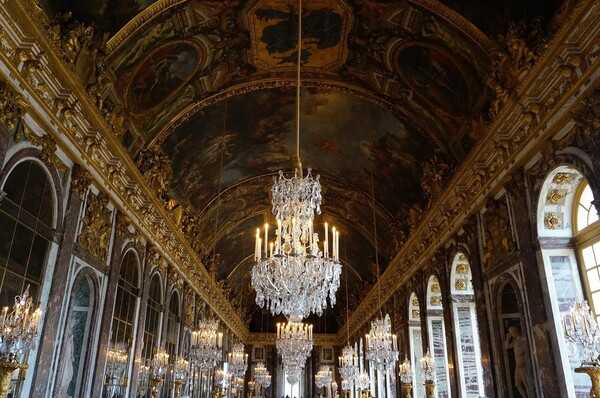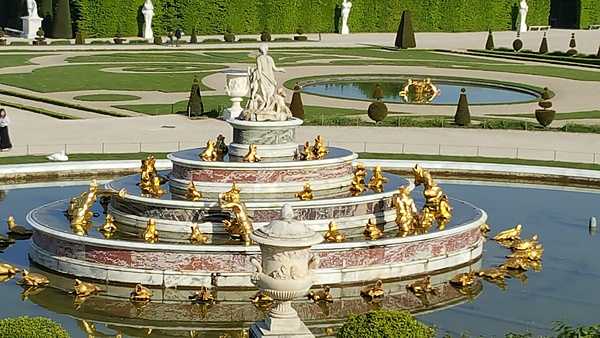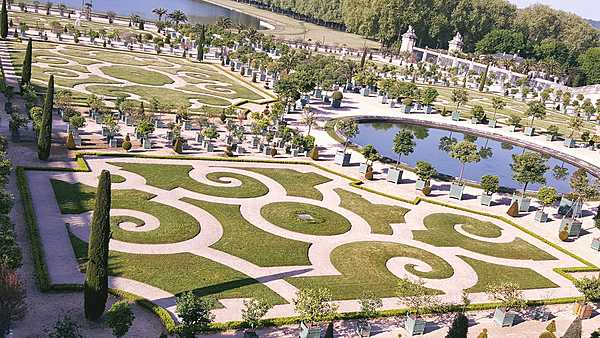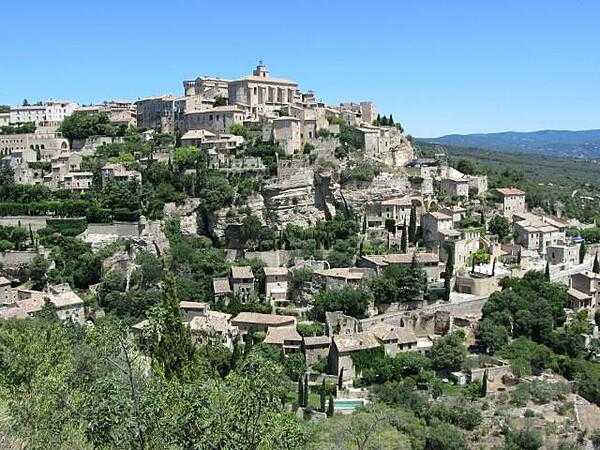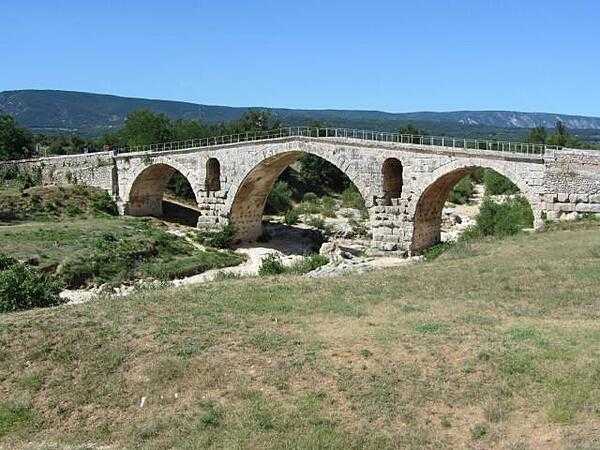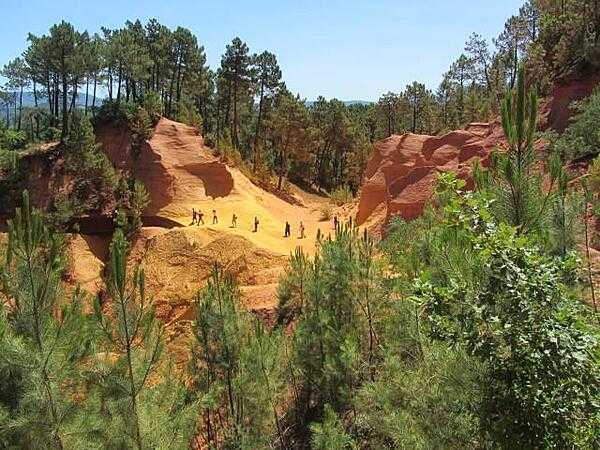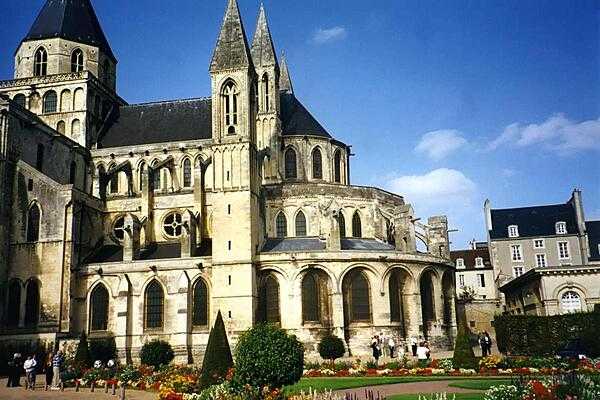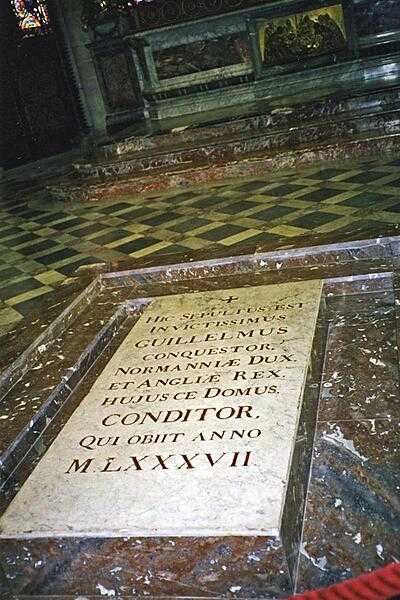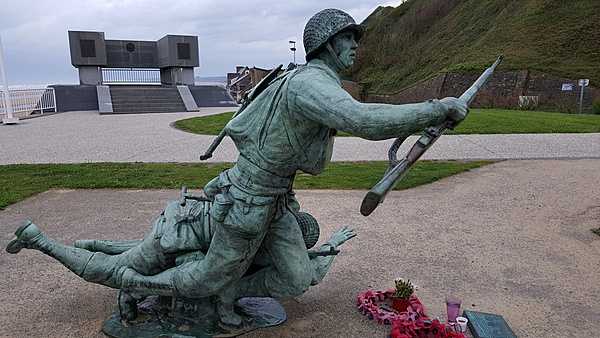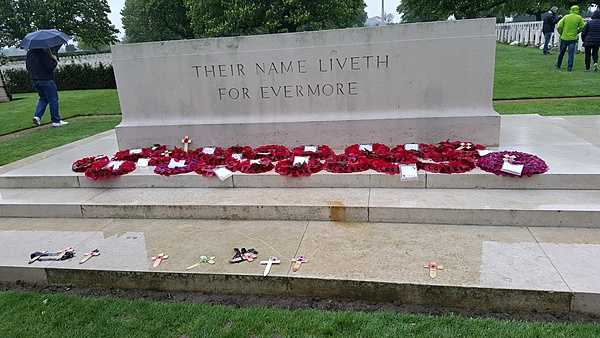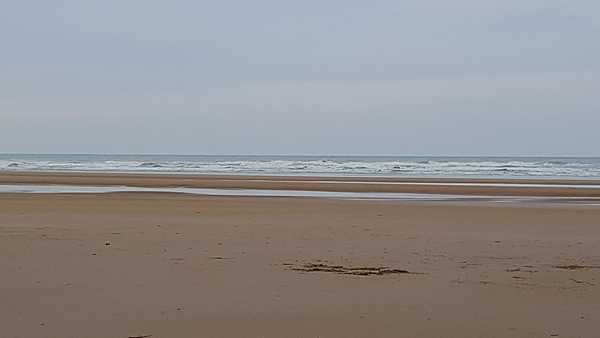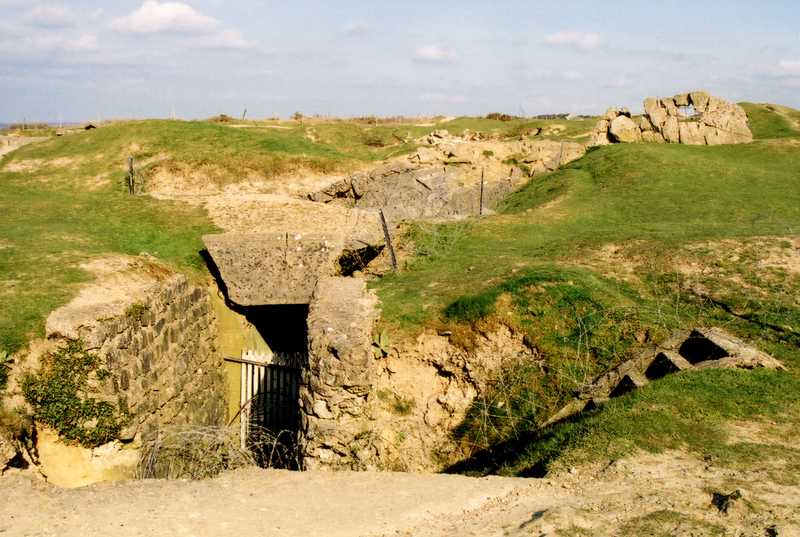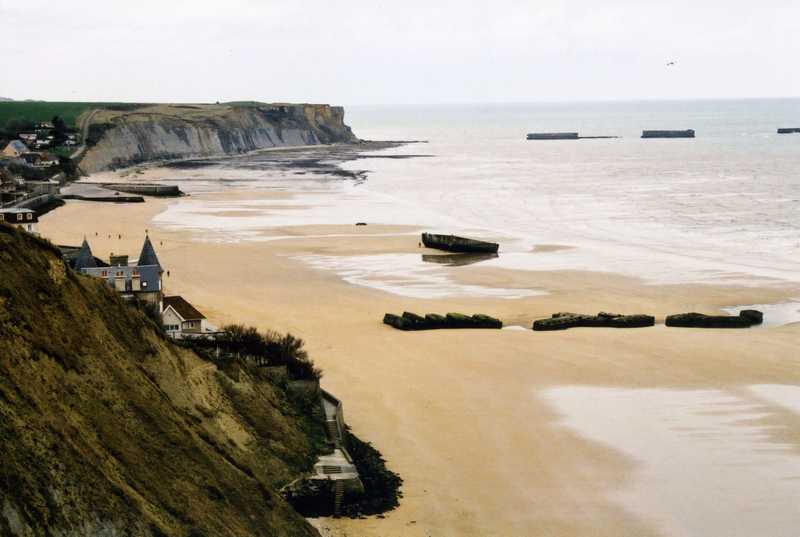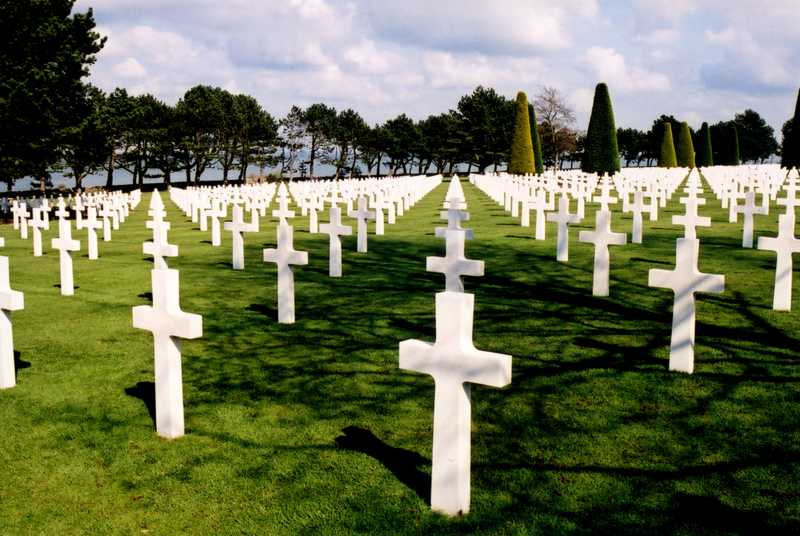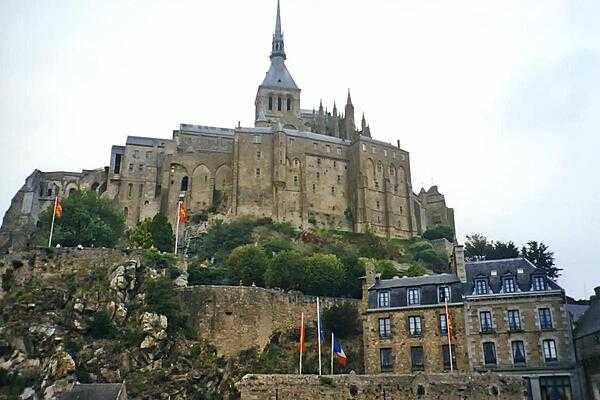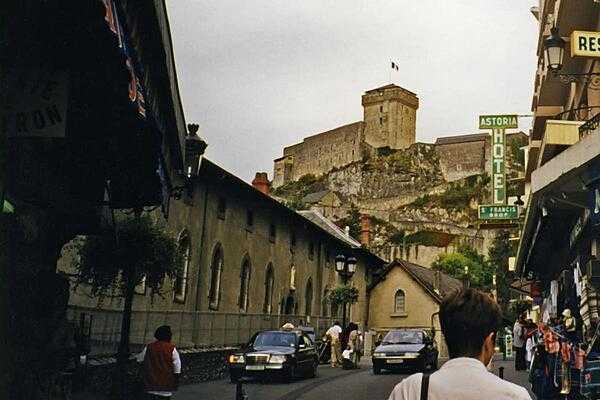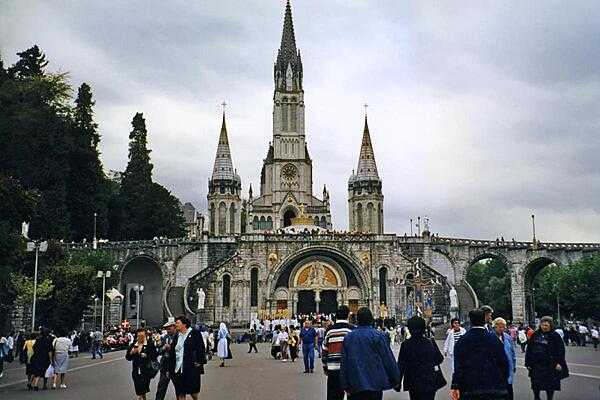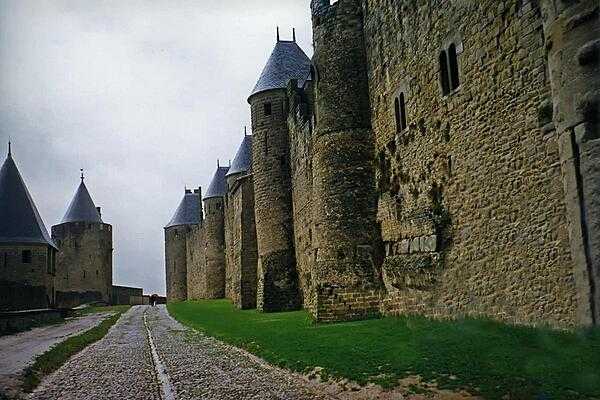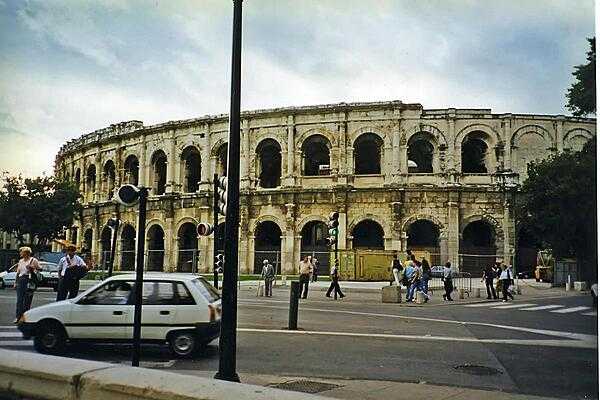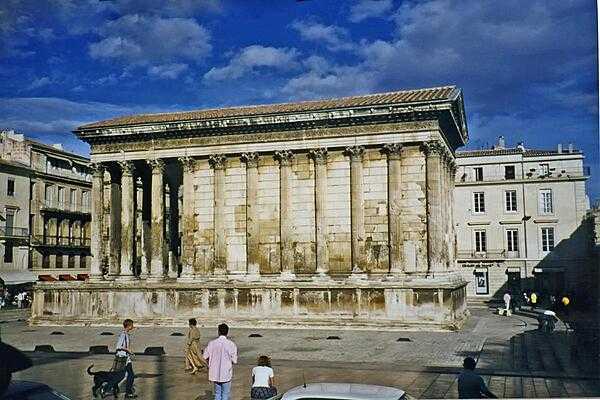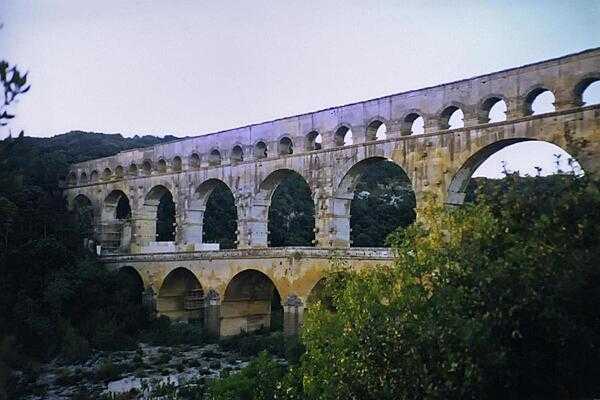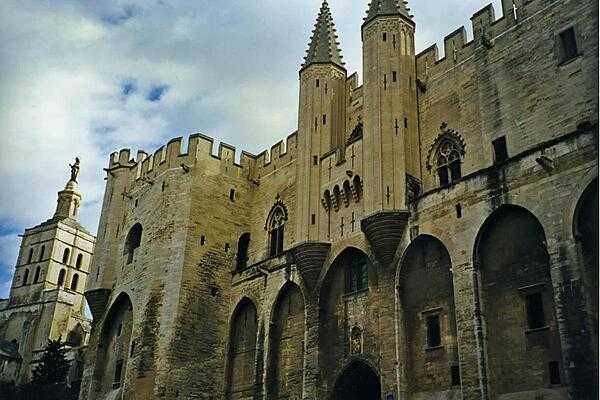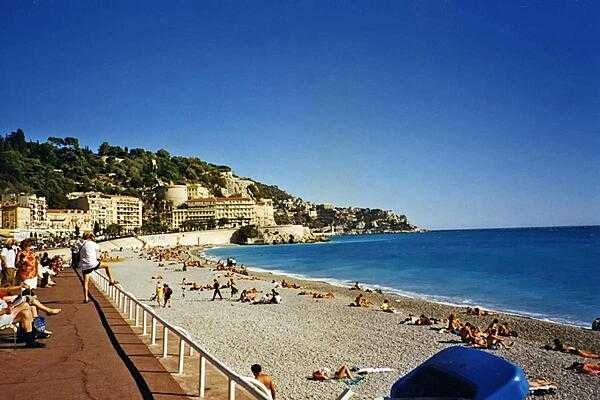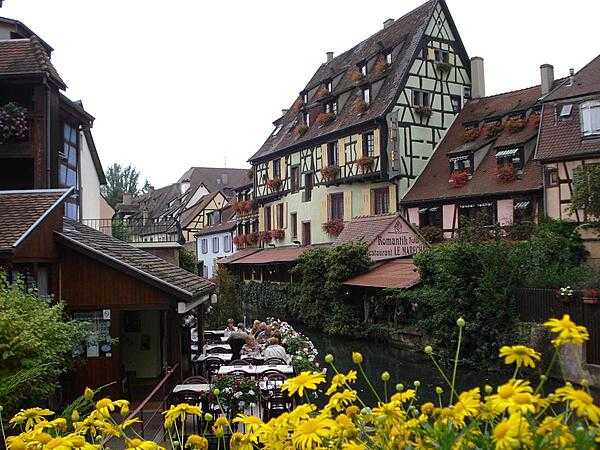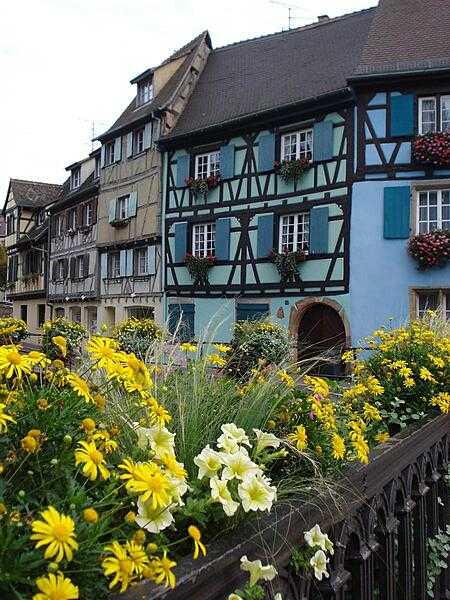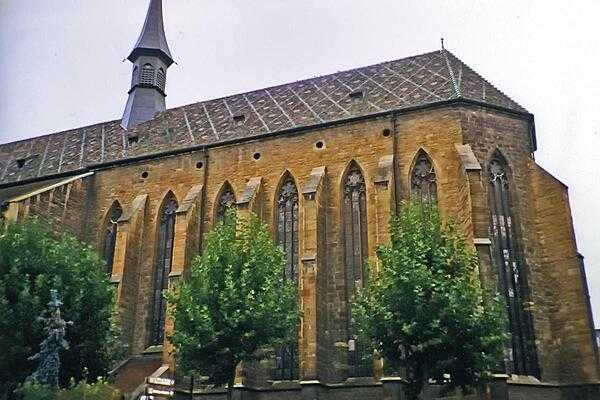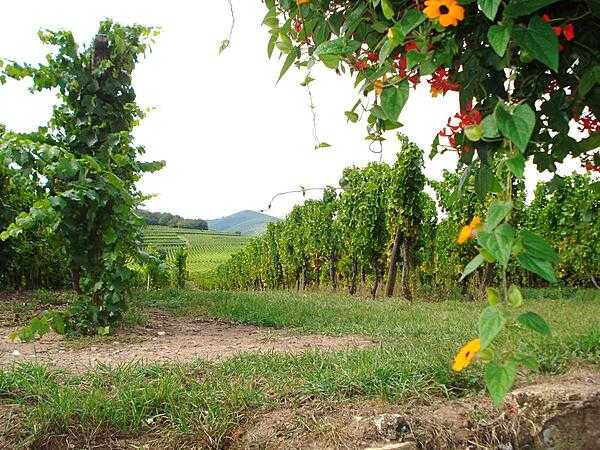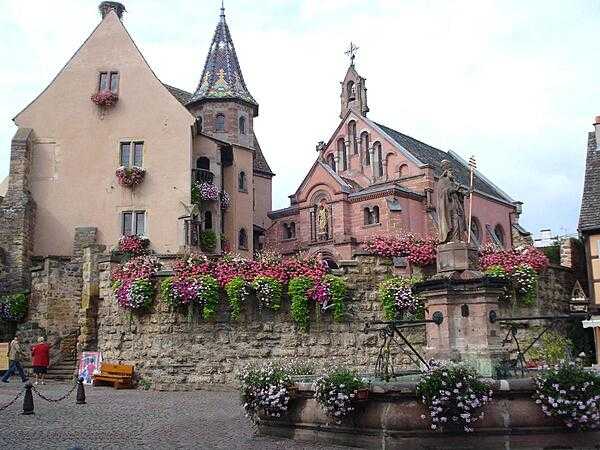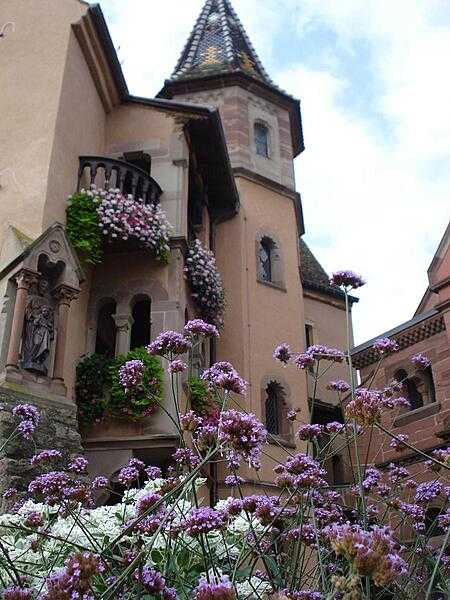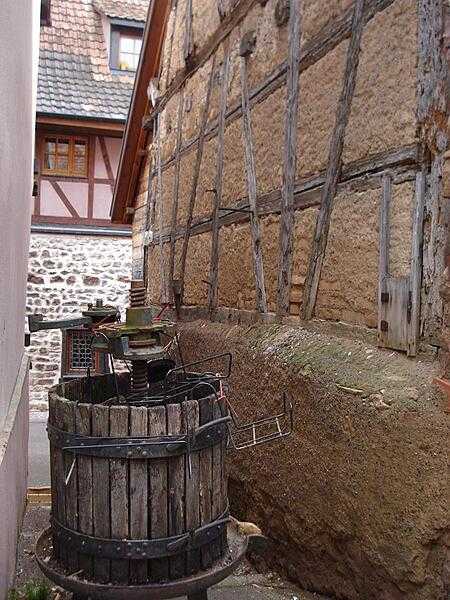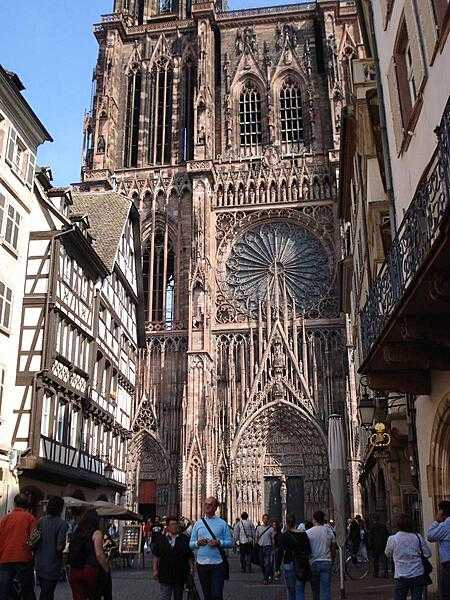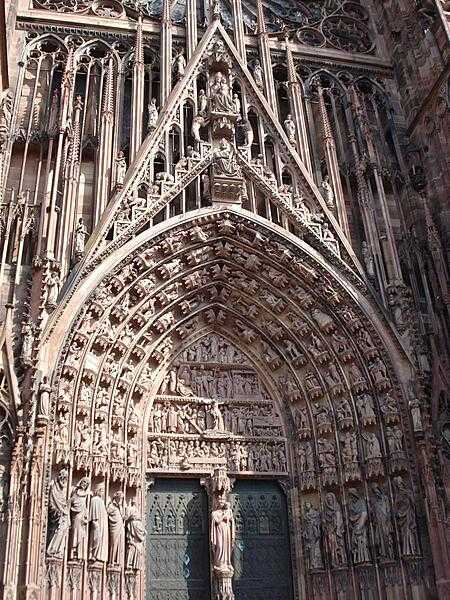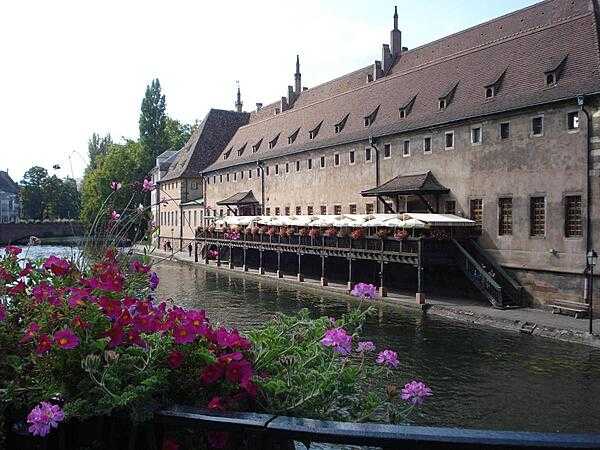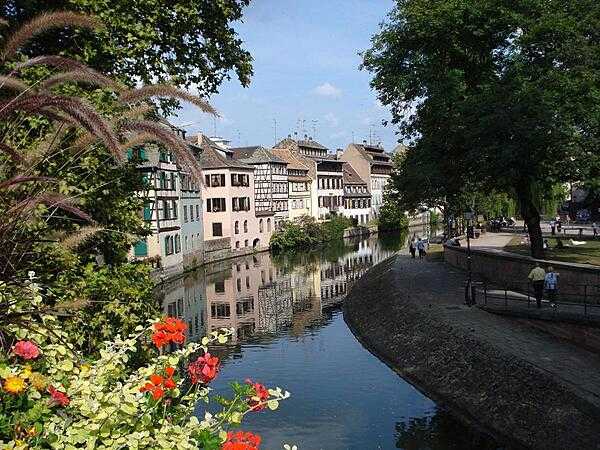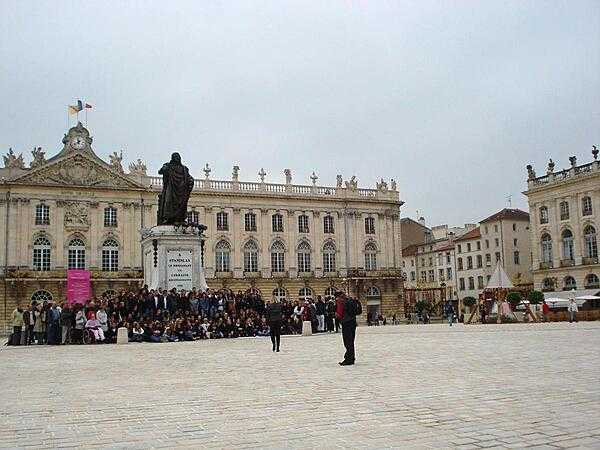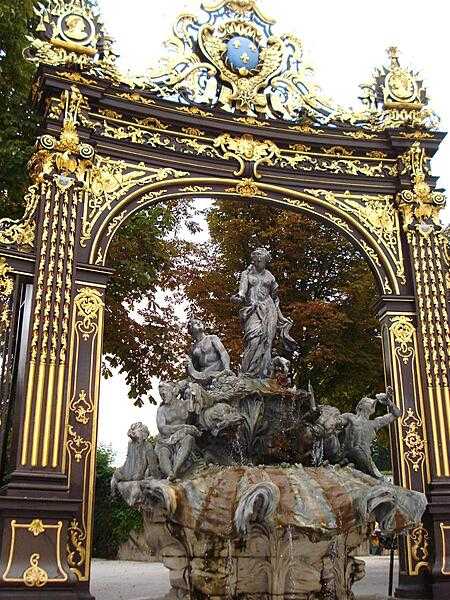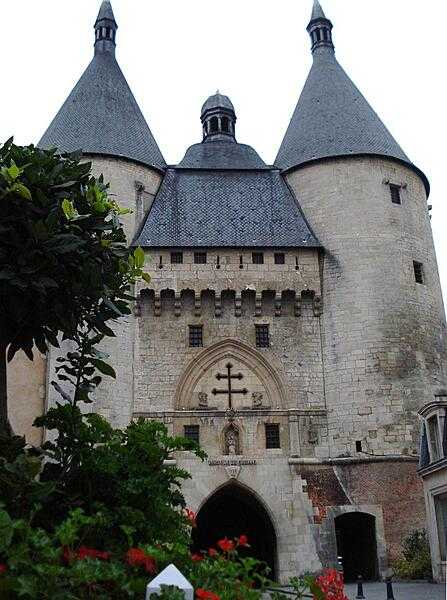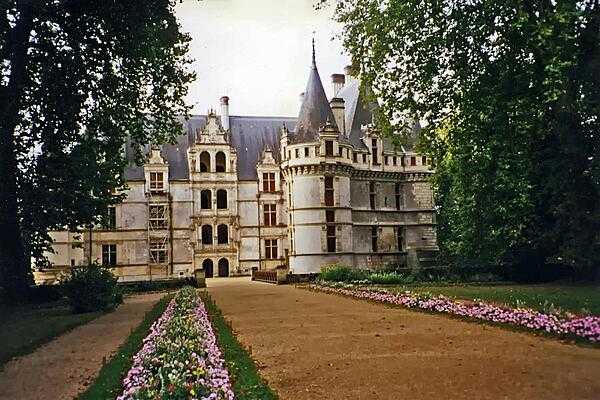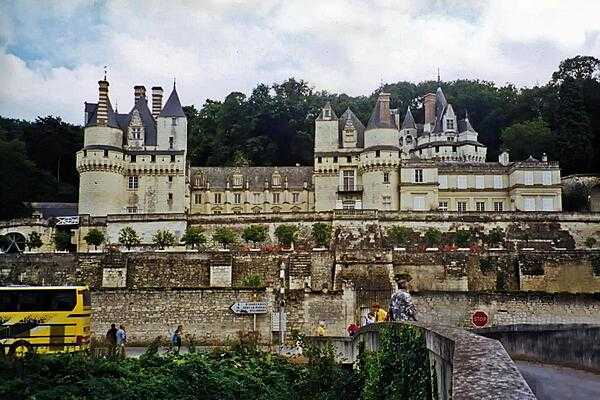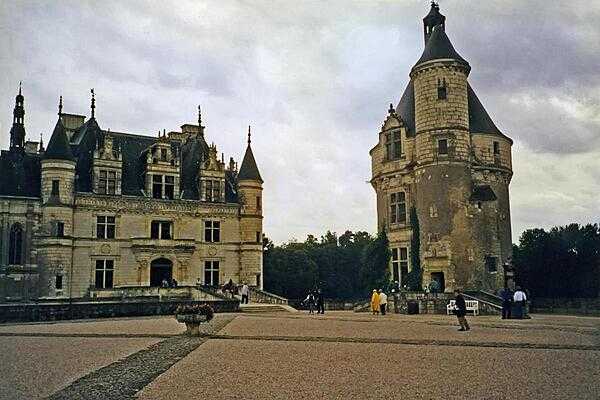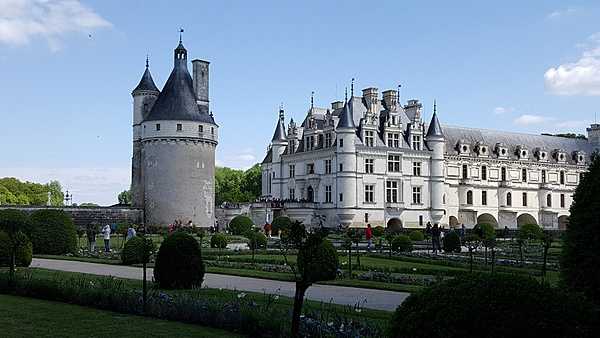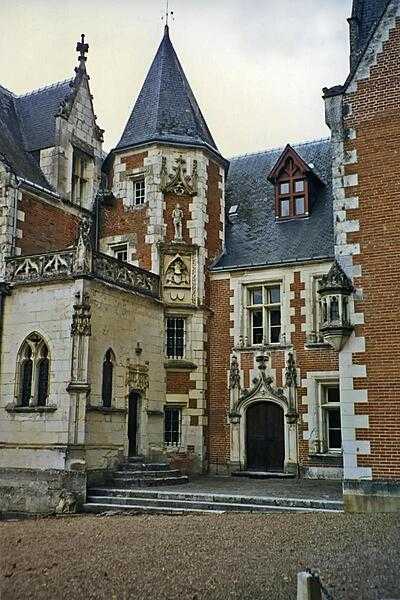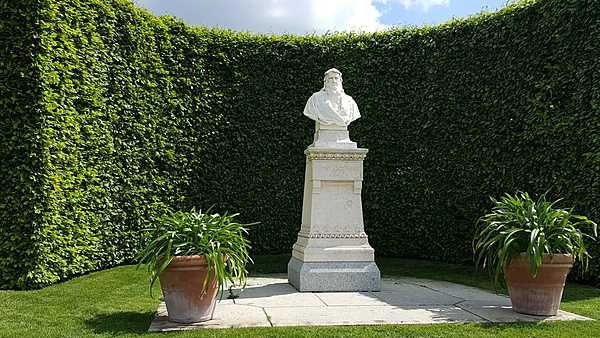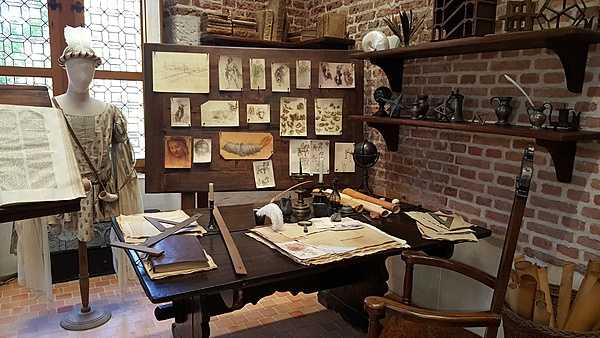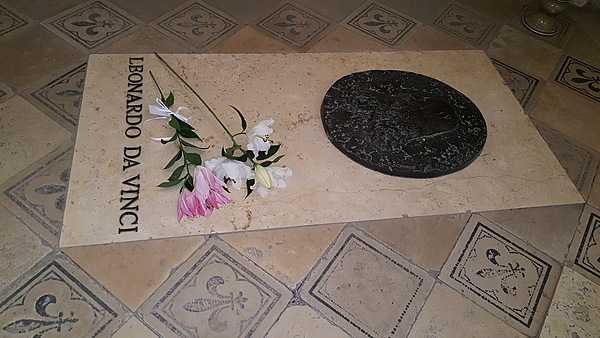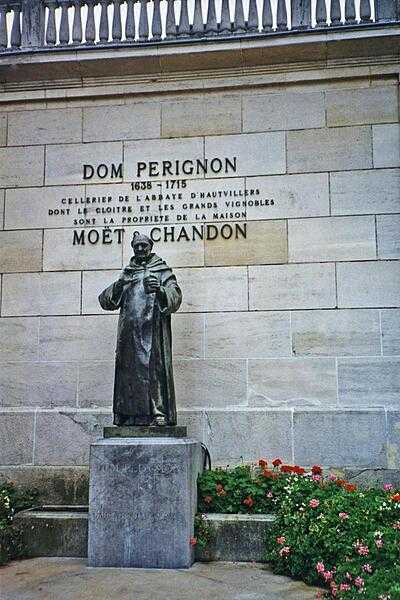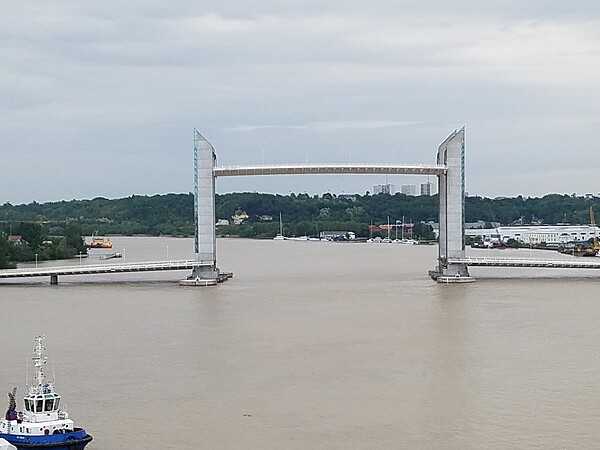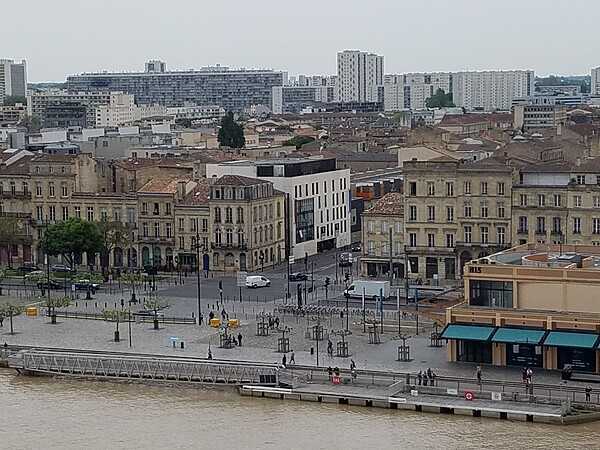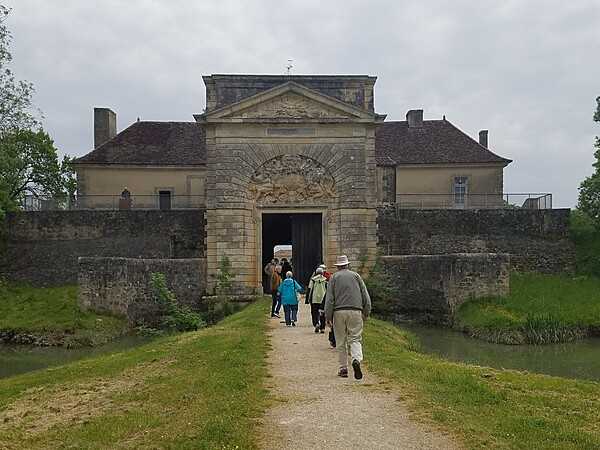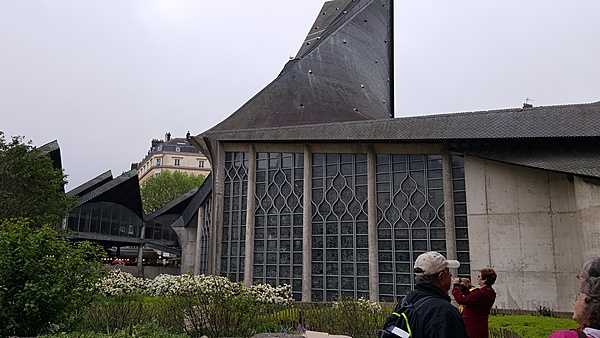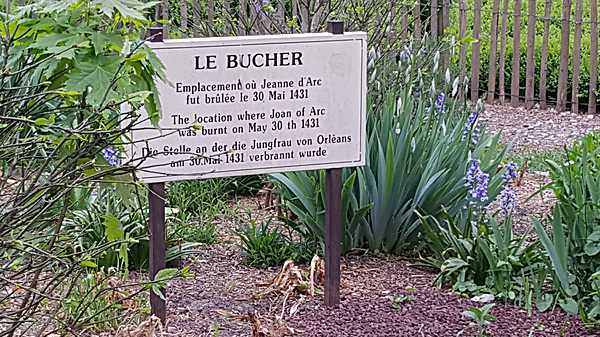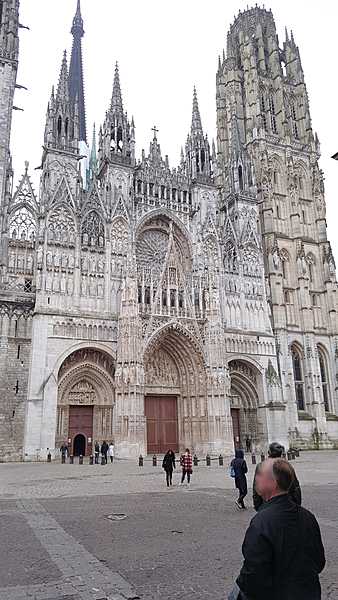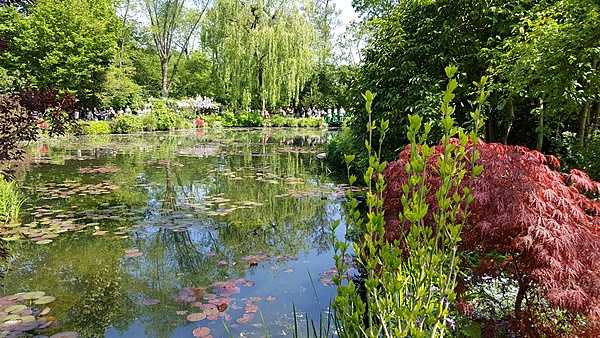France - FR - FRA - FRA - Europe
Last updated: January 20, 2026
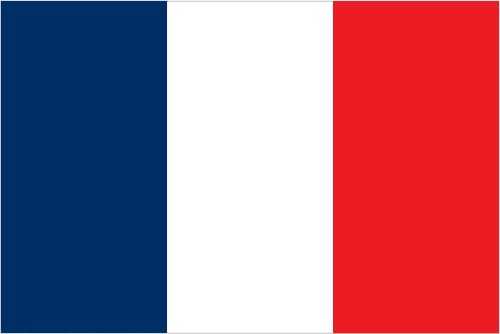
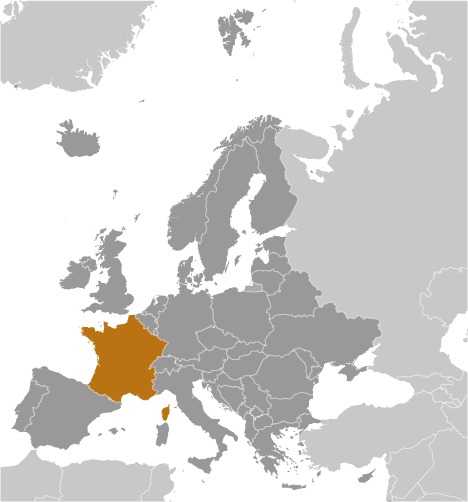
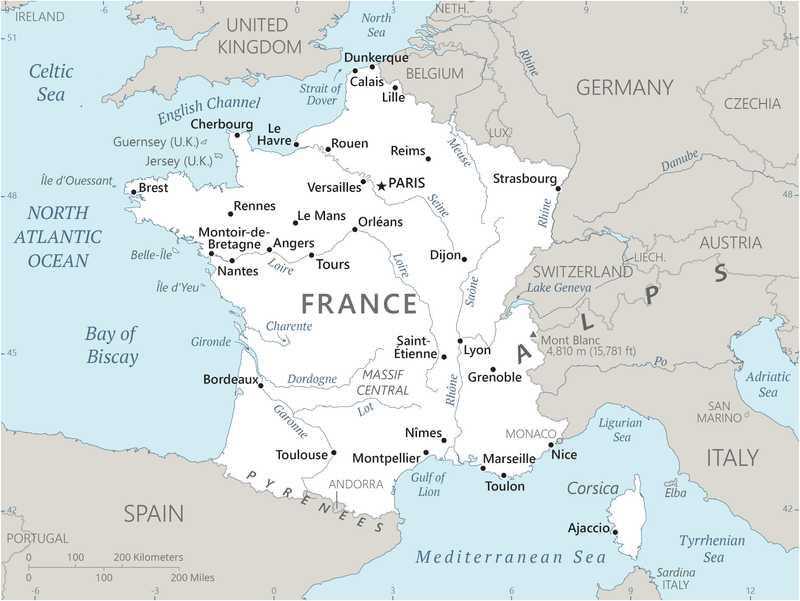
France Images
France Factbook Data
Diplomatic representation from the US
chief of mission: Ambassador Charles KUSHNER (since 11 July 2025); note - also accredited to Monaco
embassy: 2 avenue Gabriel, 75008 Paris
mailing address: 9200 Paris Place, Washington DC 20521-9200
telephone: [33] (1) 43-12-22-22, [33] (1) 42-66-97-83
FAX: [33] (1) 42-66-97-83
email address and website:
Citizeninfo@state.gov
https://fr.usembassy.gov/
consulate(s) general: Marseille, Strasbourg
consulate(s): Bordeaux, Lyon, Rennes
embassy: 2 avenue Gabriel, 75008 Paris
mailing address: 9200 Paris Place, Washington DC 20521-9200
telephone: [33] (1) 43-12-22-22, [33] (1) 42-66-97-83
FAX: [33] (1) 42-66-97-83
email address and website:
Citizeninfo@state.gov
https://fr.usembassy.gov/
consulate(s) general: Marseille, Strasbourg
consulate(s): Bordeaux, Lyon, Rennes
Age structure
0-14 years: 17.3% (male 6,060,087/female 5,792,805)
15-64 years: 60.7% (male 20,875,861/female 20,615,847)
65 years and over: 22% (2024 est.) (male 6,621,146/female 8,408,845)
15-64 years: 60.7% (male 20,875,861/female 20,615,847)
65 years and over: 22% (2024 est.) (male 6,621,146/female 8,408,845)
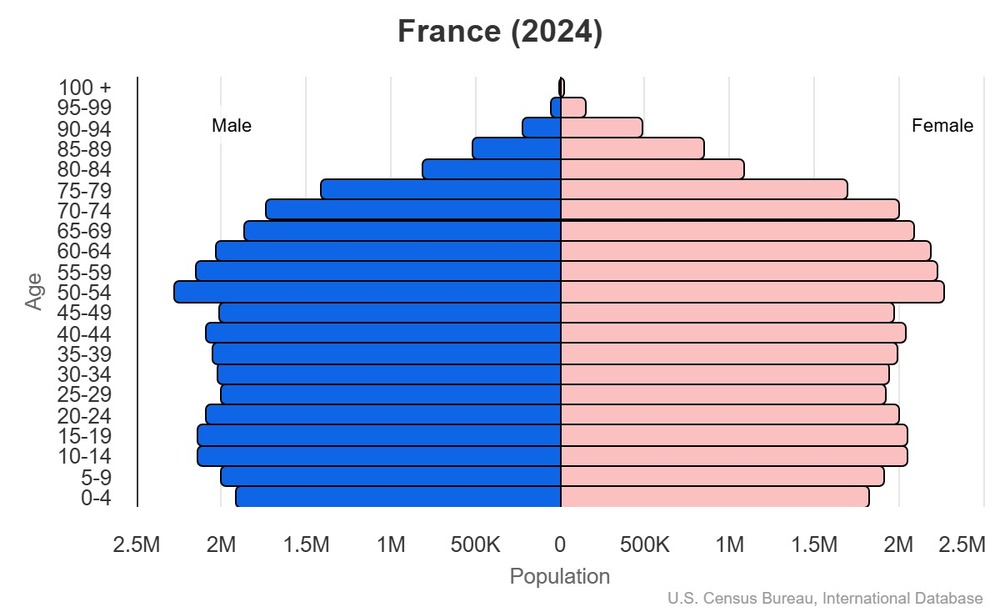
This is the population pyramid for France. A population pyramid illustrates the age and sex structure of a country's population and may provide insights about political and social stability, as well as economic development. The population is distributed along the horizontal axis, with males shown on the left and females on the right. The male and female populations are broken down into 5-year age groups represented as horizontal bars along the vertical axis, with the youngest age groups at the bottom and the oldest at the top. The shape of the population pyramid gradually evolves over time based on fertility, mortality, and international migration trends.
For additional information, please see the entry for Population pyramid on the Definitions and Notes page.
For additional information, please see the entry for Population pyramid on the Definitions and Notes page.
Geographic coordinates
metropolitan France: 46 00 N, 2 00 E
French Guiana: 4 00 N, 53 00 W
Guadeloupe: 16 15 N, 61 35 W
Martinique: 14 40 N, 61 00 W
Mayotte: 12 50 S, 45 10 E
Reunion: 21 06 S, 55 36 E
French Guiana: 4 00 N, 53 00 W
Guadeloupe: 16 15 N, 61 35 W
Martinique: 14 40 N, 61 00 W
Mayotte: 12 50 S, 45 10 E
Reunion: 21 06 S, 55 36 E
Sex ratio
at birth: 1.05 male(s)/female
0-14 years: 1.05 male(s)/female
15-64 years: 1.01 male(s)/female
65 years and over: 0.79 male(s)/female
total population: 0.96 male(s)/female (2024 est.)
0-14 years: 1.05 male(s)/female
15-64 years: 1.01 male(s)/female
65 years and over: 0.79 male(s)/female
total population: 0.96 male(s)/female (2024 est.)
Natural hazards
metropolitan France: flooding; avalanches; midwinter windstorms; drought; forest fires in south
overseas departments: hurricanes (cyclones); flooding
volcanism: Montagne Pelée (1,394 m) on the island of Martinique in the Caribbean is the most active volcano of the Lesser Antilles arc, although it last erupted in 1932; a catastrophic eruption in 1902 destroyed the city of St. Pierre, killing an estimated 30,000 people; La Soufrière (1,467 m) on the island of Guadeloupe has also had explosive eruptions in recent years
overseas departments: hurricanes (cyclones); flooding
volcanism: Montagne Pelée (1,394 m) on the island of Martinique in the Caribbean is the most active volcano of the Lesser Antilles arc, although it last erupted in 1932; a catastrophic eruption in 1902 destroyed the city of St. Pierre, killing an estimated 30,000 people; La Soufrière (1,467 m) on the island of Guadeloupe has also had explosive eruptions in recent years
Area - comparative
slightly more than four times the size of Georgia; slightly less than the size of Texas
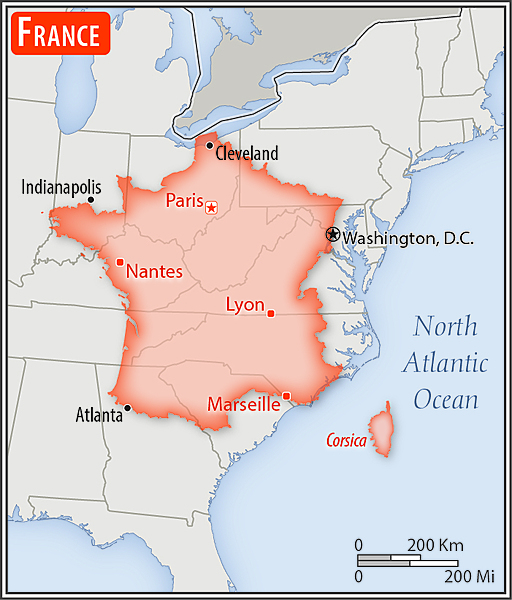
slightly more than four times the size of Georgia; slightly less than the size of Texas
Background
France today is one of the most modern countries in the world and is a leader among European nations. It plays an influential global role as a permanent member of the United Nations Security Council, NATO, the G-7, the G-20, the EU, and other multilateral organizations. France rejoined NATO's integrated military command structure in 2009, reversing then President Charles DE GAULLE's 1966 decision to withdraw French forces from NATO. Since 1958, it has constructed a hybrid presidential-parliamentary governing system resistant to the instabilities experienced in earlier, more purely parliamentary administrations. In recent decades, its reconciliation and cooperation with Germany have proved central to the economic integration of Europe, including the introduction of a common currency, the euro, in January 1999. In the early 21st century, five French overseas entities -- French Guiana, Guadeloupe, Martinique, Mayotte, and Reunion -- became French regions and were made part of France proper.
Environmental issues
air pollution and acid rain from industrial and vehicle emissions; water pollution from urban wastes, agricultural runoff
International environmental agreements
party to: Air Pollution, Air Pollution-Heavy Metals, Air Pollution-Multi-effect Protocol, Air Pollution-Nitrogen Oxides, Air Pollution-Persistent Organic Pollutants, Air Pollution-Sulphur 85, Air Pollution-Sulphur 94, Air Pollution-Volatile Organic Compounds, Antarctic-Environmental Protection, Antarctic-Marine Living Resources, Antarctic Seals, Antarctic Treaty, Biodiversity, Climate Change, Climate Change-Kyoto Protocol, Climate Change-Paris Agreement, Comprehensive Nuclear Test Ban, Desertification, Endangered Species, Hazardous Wastes, Law of the Sea, Marine Dumping-London Convention, Marine Dumping-London Protocol, Marine Life Conservation, Ozone Layer Protection, Ship Pollution, Tropical Timber 2006, Wetlands, Whaling
signed, but not ratified: none of the selected agreements
signed, but not ratified: none of the selected agreements
Military expenditures
2.1% of GDP (2025 est.)
2% of GDP (2024 est.)
1.9% of GDP (2023 est.)
1.9% of GDP (2022 est.)
1.9% of GDP (2021 est.)
2% of GDP (2024 est.)
1.9% of GDP (2023 est.)
1.9% of GDP (2022 est.)
1.9% of GDP (2021 est.)
Population below poverty line
15.6% (2021 est.)
note: % of population with income below national poverty line
note: % of population with income below national poverty line
Household income or consumption by percentage share
lowest 10%: 3% (2022 est.)
highest 10%: 24.6% (2022 est.)
note: % share of income accruing to lowest and highest 10% of population
highest 10%: 24.6% (2022 est.)
note: % share of income accruing to lowest and highest 10% of population
Exports - commodities
aircraft, cars, packaged medicine, gas turbines, vehicle parts/accessories (2023)
note: top five export commodities based on value in dollars
note: top five export commodities based on value in dollars
Exports - partners
Germany 11%, Italy 9%, USA 8%, Belgium 8%, Spain 7% (2023)
note: top five export partners based on percentage share of exports
note: top five export partners based on percentage share of exports
Administrative divisions
18 regions (régions, singular - région); Auvergne-Rhône-Alpes, Bourgogne-Franche-Comté, Bretagne (Brittany), Centre-Val de Loire (Center-Loire Valley), Corse (Corsica), Grand Est (Grand East), Guadeloupe, Guyane (French Guiana), Hauts-de-France (Upper France), Ile-de-France, Martinique, Mayotte, Normandie (Normandy), Nouvelle-Aquitaine (New Aquitaine), Occitanie (Occitania), Pays de la Loire (Lands of the Loire), Provence-Alpes-Côte d'Azur, Réunion
note: France is divided into 13 metropolitan regions (including the "collectivity" of Corse, or Corsica) and 5 overseas regions (French Guiana, Guadeloupe, Martinique, Mayotte, and Réunion) and is subdivided into 96 metropolitan departments and 5 overseas departments (which are the same as the overseas regions)
note: France is divided into 13 metropolitan regions (including the "collectivity" of Corse, or Corsica) and 5 overseas regions (French Guiana, Guadeloupe, Martinique, Mayotte, and Réunion) and is subdivided into 96 metropolitan departments and 5 overseas departments (which are the same as the overseas regions)
Agricultural products
wheat, sugar beets, milk, maize, barley, potatoes, grapes, rapeseed, pork, sunflower seeds (2023)
note: top ten agricultural products based on tonnage
note: top ten agricultural products based on tonnage
Military and security forces
French Armed Forces (Forces Armées Françaises): Army (l'Armee de Terre; includes Foreign Legion), Navy (Marine Nationale), Air and Space Force (l'Armee de l’Air et de l’Espace); includes Air Defense), National Guard (Garde Nationale), National Gendarmerie (Gendarmerie Nationale) (2025)
note 1: under the direction of the Ministry of the Interior, the civilian National Police and the National Gendarmerie maintain internal security; the National Gendarmerie is a paramilitary police force that is a branch of the Armed Forces and therefore part of the Ministry of Defense but under the jurisdiction of the Ministry of the Interior; it also has additional duties to the Ministry of Justice
note 2: the National Guard is composed of operational reservists belonging to the Ministry of the Armed Forces and the Ministry of the Interior
note 3: the French Foreign Legion, established in 1831, is a military force that is open to foreign recruits willing to serve in the French military for service in France and abroad; the Foreign Legion is an integrated part of the French Army; its combat units are a mix of armored cavalry and airborne, light, mechanized, and motorized infantry regiments
note 1: under the direction of the Ministry of the Interior, the civilian National Police and the National Gendarmerie maintain internal security; the National Gendarmerie is a paramilitary police force that is a branch of the Armed Forces and therefore part of the Ministry of Defense but under the jurisdiction of the Ministry of the Interior; it also has additional duties to the Ministry of Justice
note 2: the National Guard is composed of operational reservists belonging to the Ministry of the Armed Forces and the Ministry of the Interior
note 3: the French Foreign Legion, established in 1831, is a military force that is open to foreign recruits willing to serve in the French military for service in France and abroad; the Foreign Legion is an integrated part of the French Army; its combat units are a mix of armored cavalry and airborne, light, mechanized, and motorized infantry regiments
Budget
revenues: $1.29 trillion (2023 est.)
expenditures: $1.447 trillion (2023 est.)
note: central government revenues (excluding grants) and expenditures converted to US dollars at average official exchange rate for year indicated
expenditures: $1.447 trillion (2023 est.)
note: central government revenues (excluding grants) and expenditures converted to US dollars at average official exchange rate for year indicated
Capital
name: Paris
geographic coordinates: 48 52 N, 2 20 E
time difference: UTC+1 (6 hours ahead of Washington, DC, during Standard Time)
daylight saving time: +1hr, begins last Sunday in March; ends last Sunday in October
time zone note: applies to metropolitan France only; for its overseas regions the time difference is UTC-4 for Guadeloupe and Martinique, UTC-3 for French Guiana, UTC+3 for Mayotte, and UTC+4 for Reunion
etymology: name derives from the Parisii, a Celtic tribe that inhabited the area from the 3rd century B.C.; the Celtic settlement became the Roman town of Lutetia Parisiorum (Lutetia of the Parisii); over subsequent centuries it became Parisium and then Paris
geographic coordinates: 48 52 N, 2 20 E
time difference: UTC+1 (6 hours ahead of Washington, DC, during Standard Time)
daylight saving time: +1hr, begins last Sunday in March; ends last Sunday in October
time zone note: applies to metropolitan France only; for its overseas regions the time difference is UTC-4 for Guadeloupe and Martinique, UTC-3 for French Guiana, UTC+3 for Mayotte, and UTC+4 for Reunion
etymology: name derives from the Parisii, a Celtic tribe that inhabited the area from the 3rd century B.C.; the Celtic settlement became the Roman town of Lutetia Parisiorum (Lutetia of the Parisii); over subsequent centuries it became Parisium and then Paris
Imports - commodities
cars, natural gas, crude petroleum, refined petroleum, garments (2023)
note: top five import commodities based on value in dollars
note: top five import commodities based on value in dollars
Climate
metropolitan France: generally cool winters and mild summers, but mild winters and hot summers along the Mediterranean; occasional strong, cold, dry, north-to-northwesterly wind known as the mistral
French Guiana: tropical; hot, humid; little seasonal temperature variation
Guadeloupe and Martinique: subtropical tempered by trade winds; moderately high humidity; rainy season (June to October); vulnerable to devastating cyclones (hurricanes) every eight years on average
Mayotte: tropical; marine; hot, humid, rainy season during northeastern monsoon (November to May); dry season is cooler (May to November)
Reunion: tropical, but temperature moderates with elevation; cool and dry (May to November), hot and rainy (November to April)
French Guiana: tropical; hot, humid; little seasonal temperature variation
Guadeloupe and Martinique: subtropical tempered by trade winds; moderately high humidity; rainy season (June to October); vulnerable to devastating cyclones (hurricanes) every eight years on average
Mayotte: tropical; marine; hot, humid, rainy season during northeastern monsoon (November to May); dry season is cooler (May to November)
Reunion: tropical, but temperature moderates with elevation; cool and dry (May to November), hot and rainy (November to April)
Coastline
4,853 km
metropolitan France: 3,427 km
metropolitan France: 3,427 km
Constitution
history: many previous; latest effective 4 October 1958
amendment process: proposed by the president of the republic (upon recommendation of the prime minister and Parliament) or by Parliament; proposals submitted by Parliament members require passage by both houses followed by approval in a referendum; passage of proposals submitted by the government can bypass a referendum if submitted by the president to Parliament and passed by at least three-fifths majority vote by Parliament’s National Assembly
amendment process: proposed by the president of the republic (upon recommendation of the prime minister and Parliament) or by Parliament; proposals submitted by Parliament members require passage by both houses followed by approval in a referendum; passage of proposals submitted by the government can bypass a referendum if submitted by the president to Parliament and passed by at least three-fifths majority vote by Parliament’s National Assembly
Dependent areas
Clipperton Island, French Polynesia, French Southern and Antarctic Lands, New Caledonia, Saint Barthelemy, Saint Martin, Saint Pierre and Miquelon, Wallis and Futuna (8)
note: the US Government does not recognize claims to Antarctica; New Caledonia has been considered a "sui generis" collectivity of France since 1998, a unique status falling between that of an independent country and a French overseas department
note: the US Government does not recognize claims to Antarctica; New Caledonia has been considered a "sui generis" collectivity of France since 1998, a unique status falling between that of an independent country and a French overseas department
Exchange rates
euros (EUR) per US dollar -
Exchange rates:
0.924 (2024 est.)
0.925 (2023 est.)
0.95 (2022 est.)
0.845 (2021 est.)
0.876 (2020 est.)
Exchange rates:
0.924 (2024 est.)
0.925 (2023 est.)
0.95 (2022 est.)
0.845 (2021 est.)
0.876 (2020 est.)
Executive branch
chief of state: President Emmanuel MACRON (since 14 May 2017)
head of government: Sébastien LECORNU (since 10 September 2025)
cabinet: Council of Ministers appointed by the president at the suggestion of the prime minister
election/appointment process: president directly elected by absolute-majority popular vote in 2 rounds, if needed, for a 5-year term (eligible for a second term); prime minister appointed by the president
most recent election date: 10 April 2022, with a runoff held on 24 April 2022
election results:
2022: Emmanuel MACRON reelected in second round; percent of vote in first round - Emmanuel MACRON (LREM) 27.8%, Marine LE PEN (RN) 23.2%, Jean-Luc MELENCHON (LFI) 22%, Eric ZEMMOUR (Reconquête) 7.1%, Valerie PECRESSE (LR) 4.8%, Yannick JADOT (EELV) 4.6%, other 10.6%; percent of vote in second round - MACRON 58.5%, LE PEN 41.5%
2017: Emmanuel MACRON elected president in second round; percent of vote in first round - Emmanuel MACRON (EM) 24%, Marine LE PEN (FN) 21.3%, Francois FILLON (LR) 20%, Jean-Luc MELENCHON (FI) 19.6%, Benoit HAMON (PS) 6.4%, other 8.7%; percent of vote in second round - MACRON 66.1%, LE PEN 33.9%
expected date of next election: April 2027
head of government: Sébastien LECORNU (since 10 September 2025)
cabinet: Council of Ministers appointed by the president at the suggestion of the prime minister
election/appointment process: president directly elected by absolute-majority popular vote in 2 rounds, if needed, for a 5-year term (eligible for a second term); prime minister appointed by the president
most recent election date: 10 April 2022, with a runoff held on 24 April 2022
election results:
2022: Emmanuel MACRON reelected in second round; percent of vote in first round - Emmanuel MACRON (LREM) 27.8%, Marine LE PEN (RN) 23.2%, Jean-Luc MELENCHON (LFI) 22%, Eric ZEMMOUR (Reconquête) 7.1%, Valerie PECRESSE (LR) 4.8%, Yannick JADOT (EELV) 4.6%, other 10.6%; percent of vote in second round - MACRON 58.5%, LE PEN 41.5%
2017: Emmanuel MACRON elected president in second round; percent of vote in first round - Emmanuel MACRON (EM) 24%, Marine LE PEN (FN) 21.3%, Francois FILLON (LR) 20%, Jean-Luc MELENCHON (FI) 19.6%, Benoit HAMON (PS) 6.4%, other 8.7%; percent of vote in second round - MACRON 66.1%, LE PEN 33.9%
expected date of next election: April 2027
Flag
description: three equal vertical bands of blue (left side), white, and red
history: known as the le tricolore (tricolor), the flag dates to 1790 and the French Revolution, when the traditional color of white was combined with the blue and red of the Paris militia; for the first four years of the flag's use (1790-94), the order of colors was reversed (red-white-blue)
note 1: serves as the official flag for all French dependencies
note 2: the design and colors are similar to a number of other flags, including those of Belgium, Chad, Cote d'Ivoire, Ireland, Italy, Luxembourg, and Netherlands
history: known as the le tricolore (tricolor), the flag dates to 1790 and the French Revolution, when the traditional color of white was combined with the blue and red of the Paris militia; for the first four years of the flag's use (1790-94), the order of colors was reversed (red-white-blue)
note 1: serves as the official flag for all French dependencies
note 2: the design and colors are similar to a number of other flags, including those of Belgium, Chad, Cote d'Ivoire, Ireland, Italy, Luxembourg, and Netherlands
Independence
no official date of independence: 486 (Frankish tribes unified under Merovingian kingship); 10 August 843 (Western Francia established from the division of the Carolingian Empire); 14 July 1789 (French monarchy overthrown); 22 September 1792 (First French Republic established); 4 October 1958 (Fifth French Republic established)
Industries
machinery, chemicals, automobiles, metallurgy, aircraft, electronics, textiles, food processing, tourism
Judicial branch
highest court(s): Court of Cassation or Cour de Cassation (consists of the court president, 6 divisional presiding judges, 120 trial judges, and 70 deputy judges organized into 6 divisions -- 3 civil, 1 commercial, 1 labor, and 1 criminal); Constitutional Council (consists of 9 members)
judge selection and term of office: Court of Cassation judges appointed by the president of the republic from nominations from the High Council of the Judiciary, presided over by the Court of Cassation and 15 appointed members; judges appointed for life; Constitutional Council has 3 members appointed by the president of the republic and 3 each by the National Assembly and Senate presidents; members serve 9-year, non-renewable terms with one third of the membership renewed every 3 years
subordinate courts: appellate courts or cours d'appel; regional courts or tribunaux judiciaires; first instance courts or tribunaux de proximité; administrative courts
judge selection and term of office: Court of Cassation judges appointed by the president of the republic from nominations from the High Council of the Judiciary, presided over by the Court of Cassation and 15 appointed members; judges appointed for life; Constitutional Council has 3 members appointed by the president of the republic and 3 each by the National Assembly and Senate presidents; members serve 9-year, non-renewable terms with one third of the membership renewed every 3 years
subordinate courts: appellate courts or cours d'appel; regional courts or tribunaux judiciaires; first instance courts or tribunaux de proximité; administrative courts
Land boundaries
total: 3,956 km
border countries (8): Andorra 55 km; Belgium 556 km; Germany 418 km; Italy 476 km; Luxembourg 69 km; Monaco 6 km; Spain 646 km; Switzerland 525 km
metropolitan France - total: 2751 km
French Guiana - total: 1205 km
border countries (8): Andorra 55 km; Belgium 556 km; Germany 418 km; Italy 476 km; Luxembourg 69 km; Monaco 6 km; Spain 646 km; Switzerland 525 km
metropolitan France - total: 2751 km
French Guiana - total: 1205 km
Land use
agricultural land: 52.5% (2023 est.)
arable land: 31.4% (2023 est.)
permanent crops: 1.9% (2023 est.)
permanent pasture: 19.2% (2023 est.)
forest: 32.7% (2023 est.)
other: 15% (2023 est.)
arable land: 31.4% (2023 est.)
permanent crops: 1.9% (2023 est.)
permanent pasture: 19.2% (2023 est.)
forest: 32.7% (2023 est.)
other: 15% (2023 est.)
Legal system
civil law; review of administrative but not legislative acts
Legislative branch
legislature name: Parliament (Parlement)
legislative structure: bicameral
legislative structure: bicameral
Maritime claims
territorial sea: 12 nm
contiguous zone: 24 nm
exclusive economic zone: 200 nm (does not apply to the Mediterranean Sea)
continental shelf: 200m depth or to the depth of exploitation
contiguous zone: 24 nm
exclusive economic zone: 200 nm (does not apply to the Mediterranean Sea)
continental shelf: 200m depth or to the depth of exploitation
International organization participation
ADB (nonregional member), AfDB (nonregional member), Arctic Council (observer), Australia Group, BDEAC, BIS, BSEC (observer), CBSS (observer), CE, CERN, EAPC, EBRD, ECB, EIB, EITI (implementing country), EMU, ESA, EU, FAO, FATF, FZ, G-5, G-7, G-8, G-10, G-20, IADB, IAEA, IBRD, ICAO, ICC (national committees), ICCt, ICRM, IDA, IEA, IFAD, IFC, IFRCS, IGAD (partners), IHO, ILO, IMF, IMO, IMSO, InOC, Interpol, IOC, IOM, IPU, ISO, ITSO, ITU, ITUC (NGOs), MIGA, MINURSO, MINUSTAH, MONUSCO, NATO, NEA, NSG, OAS (observer), OECD, OIF, OPCW, OSCE, Pacific Alliance (observer), Paris Club, PCA, PIF (partner), Schengen Convention, SELEC (observer), SPC, UN, UNCTAD, UNESCO, UNHCR, UNHRC, UNIDO, UNIFIL, Union Latina, UNMIL, UNOCI, UNOOSA, UNRWA, UN Security Council (permanent), UNTSO, UNWTO, UPU, Wassenaar Arrangement, WCO, WFTU (NGOs), WHO, WIPO, WMO, WTO, ZC
National holiday
Fête de la Fédération, 14 July (1790)
note: often incorrectly referred to as Bastille Day, the celebration commemorates the storming of the Bastille prison on 14 July 1789 and the establishment of a constitutional monarchy; other names for the holiday are la Fête nationale (National Holiday) and le Quatorze Juillet (14th of July)
note: often incorrectly referred to as Bastille Day, the celebration commemorates the storming of the Bastille prison on 14 July 1789 and the establishment of a constitutional monarchy; other names for the holiday are la Fête nationale (National Holiday) and le Quatorze Juillet (14th of July)
Nationality
noun: Frenchman(men), Frenchwoman(women)
adjective: French
adjective: French
Natural resources
metropolitan France: coal, iron ore, bauxite, zinc, uranium, antimony, arsenic, potash, feldspar, fluorspar, gypsum, timber, arable land, fish; French Guiana: gold deposits, petroleum, kaolin, niobium, tantalum, clay
Geography - note
largest Western European nation; most major French rivers -- the Meuse, Seine, Loire, Charente, Dordogne, and Garonne -- flow northward or westward into the Atlantic Ocean, only the Rhone flows southward into the Mediterranean Sea
Economic overview
high-income, advanced EU economy and eurozone member; strong tourism, aircraft manufacturing, pharmaceuticals, and industrial sectors; high public debt; ongoing pension reform efforts; transitioning to a green economy via "France 2030" strategy
Political parties
Citizen and Republican Movement or MRC
Debout la France or DLF
Democratic Movement or MoDem
Ensemble or ENS (electoral coalition including RE, MoDem, Horizons, PRV, UDI)
The Ecologists - the Greens or EELV
French Communist Party or PCF
Horizons
La France Insoumise or FI
Liberties, Independents, Overseas and Territories or LIOT
Movement of Progressives or MDP
National Rally or RN (formerly National Front or FN)
New Democrats or LND (formerly Ecology Democracy Solidarity or EDS)
New Popular Front or NFP (electoral coalition including FI, EELV, PS, PCF)
Radical Party of the Left or PRV
Reconquete or REC
Renaissance or RE
Résistons!
Socialist Party or PS
The Republicans or LR
Union of Democrats and Independents or UDI
Union of Far Right or UXD (electoral coalition of LR, RN)
Debout la France or DLF
Democratic Movement or MoDem
Ensemble or ENS (electoral coalition including RE, MoDem, Horizons, PRV, UDI)
The Ecologists - the Greens or EELV
French Communist Party or PCF
Horizons
La France Insoumise or FI
Liberties, Independents, Overseas and Territories or LIOT
Movement of Progressives or MDP
National Rally or RN (formerly National Front or FN)
New Democrats or LND (formerly Ecology Democracy Solidarity or EDS)
New Popular Front or NFP (electoral coalition including FI, EELV, PS, PCF)
Radical Party of the Left or PRV
Reconquete or REC
Renaissance or RE
Résistons!
Socialist Party or PS
The Republicans or LR
Union of Democrats and Independents or UDI
Union of Far Right or UXD (electoral coalition of LR, RN)
Railways
total: 27,860 km (2020) 16,660 km electrified
narrow gauge: -5 km
narrow gauge: -5 km
Suffrage
18 years of age; universal
Terrain
metropolitan France: mostly flat plains or gently rolling hills in north and west; remainder is mountainous, especially Pyrenees in south, Alps in east
French Guiana: low-lying coastal plains rising to hills and small mountains
Guadeloupe: Basse-Terre is volcanic in origin with interior mountains; Grande-Terre is low limestone formation; most of the seven other islands are volcanic in origin
Martinique: mountainous with indented coastline; dormant volcano
Mayotte: generally undulating, with deep ravines and ancient volcanic peaks
Reunion: mostly rugged and mountainous; fertile lowlands along coast
French Guiana: low-lying coastal plains rising to hills and small mountains
Guadeloupe: Basse-Terre is volcanic in origin with interior mountains; Grande-Terre is low limestone formation; most of the seven other islands are volcanic in origin
Martinique: mountainous with indented coastline; dormant volcano
Mayotte: generally undulating, with deep ravines and ancient volcanic peaks
Reunion: mostly rugged and mountainous; fertile lowlands along coast
Government type
semi-presidential republic
Country name
conventional long form: French Republic
conventional short form: France
local long form: République française
local short form: France
etymology: derives from the Latin name Francia, meaning "Land of the Franks"; the Franks were a group of Germanic tribes located along the middle and lower Rhine River in the 3rd century A.D.; the origin of the tribal name is unclear but may come from the Old German word franka, meaning "brave," or from a personal name such as Francio or Francus
conventional short form: France
local long form: République française
local short form: France
etymology: derives from the Latin name Francia, meaning "Land of the Franks"; the Franks were a group of Germanic tribes located along the middle and lower Rhine River in the 3rd century A.D.; the origin of the tribal name is unclear but may come from the Old German word franka, meaning "brave," or from a personal name such as Francio or Francus
Location
metropolitan France: Western Europe, bordering the Bay of Biscay and English Channel, between Belgium and Spain, southeast of the UK; bordering the Mediterranean Sea, between Italy and Spain
French Guiana: Northern South America, bordering the North Atlantic Ocean, between Brazil and Suriname
Guadeloupe: Caribbean, islands between the Caribbean Sea and the North Atlantic Ocean, southeast of Puerto Rico
Martinique: Caribbean, island between the Caribbean Sea and North Atlantic Ocean, north of Trinidad and Tobago
Mayotte: Southern Indian Ocean, island in the Mozambique Channel, about halfway between northern Madagascar and northern Mozambique
Reunion: Southern Africa, island in the Indian Ocean, east of Madagascar
French Guiana: Northern South America, bordering the North Atlantic Ocean, between Brazil and Suriname
Guadeloupe: Caribbean, islands between the Caribbean Sea and the North Atlantic Ocean, southeast of Puerto Rico
Martinique: Caribbean, island between the Caribbean Sea and North Atlantic Ocean, north of Trinidad and Tobago
Mayotte: Southern Indian Ocean, island in the Mozambique Channel, about halfway between northern Madagascar and northern Mozambique
Reunion: Southern Africa, island in the Indian Ocean, east of Madagascar
Map references
metropolitan France: Europe
French Guiana: South America
Guadeloupe: Central America and the Caribbean
Martinique: Central America and the Caribbean
Mayotte: Africa
Reunion: World
French Guiana: South America
Guadeloupe: Central America and the Caribbean
Martinique: Central America and the Caribbean
Mayotte: Africa
Reunion: World
Irrigated land
14,236 sq km (2020)
Diplomatic representation in the US
chief of mission: Ambassador Laurent BILI (since 19 April 2023)
chancery: 4101 Reservoir Road NW, Washington, DC 20007
telephone: [1] (202) 944-6000
FAX: [1] (202) 944-6166
email address and website:
info@ambafrance-us.org
https://franceintheus.org/
consulate(s) general: Atlanta, Boston, Chicago, Houston, Los Angeles, Miami, New Orleans, New York, San Francisco
chancery: 4101 Reservoir Road NW, Washington, DC 20007
telephone: [1] (202) 944-6000
FAX: [1] (202) 944-6166
email address and website:
info@ambafrance-us.org
https://franceintheus.org/
consulate(s) general: Atlanta, Boston, Chicago, Houston, Los Angeles, Miami, New Orleans, New York, San Francisco
Internet users
percent of population: 87% (2023 est.)
Internet country code
metropolitan France - .fr; French Guiana - .gf; Guadeloupe - .gp; Martinique - .mq; Mayotte - .yt; Reunion - .re
Refugees and internally displaced persons
refugees: 810,325 (2024 est.)
IDPs: 59 (2024 est.)
stateless persons: 2,634 (2024 est.)
IDPs: 59 (2024 est.)
stateless persons: 2,634 (2024 est.)
GDP (official exchange rate)
$3.162 trillion (2024 est.)
note: data in current dollars at official exchange rate
note: data in current dollars at official exchange rate
Total renewable water resources
211 billion cubic meters (2022 est.)
School life expectancy (primary to tertiary education)
total: 16 years (2022 est.)
male: 16 years (2022 est.)
female: 17 years (2022 est.)
male: 16 years (2022 est.)
female: 17 years (2022 est.)
Urbanization
urban population: 81.8% of total population (2023)
rate of urbanization: 0.67% annual rate of change (2020-25 est.)
rate of urbanization: 0.67% annual rate of change (2020-25 est.)
Broadcast media
a mix of both publicly operated and privately owned TV stations; state-owned TV stations operate 4 networks and have part-interest in several thematic cable/satellite channels and international channels; large number of privately owned regional and local TV stations; multi-channel satellite and cable services; public broadcaster Radio France operates 7 national networks, a series of regional networks, and services for overseas territories and foreign audiences; Radio France Internationale, under the Ministry of Foreign Affairs, is a leading international broadcaster; large number of commercial FM stations
Drinking water source
improved:
urban: 100% of population (2022 est.)
rural: 100% of population (2022 est.)
total: 100% of population (2022 est.)
unimproved:
urban: 0% of population (2022 est.)
rural: 0% of population (2022 est.)
total: 0% of population (2022 est.)
urban: 100% of population (2022 est.)
rural: 100% of population (2022 est.)
total: 100% of population (2022 est.)
unimproved:
urban: 0% of population (2022 est.)
rural: 0% of population (2022 est.)
total: 0% of population (2022 est.)
National anthem(s)
title: "La Marseillaise" (The Song of Marseille)
lyrics/music: Claude-Joseph ROUGET de Lisle
history: adopted 1795, restored 1870; acquired its name when the National Guard of Marseille sang the song while marching into Paris in 1792 during the French Revolution; one of the most recognized anthems in the world
lyrics/music: Claude-Joseph ROUGET de Lisle
history: adopted 1795, restored 1870; acquired its name when the National Guard of Marseille sang the song while marching into Paris in 1792 during the French Revolution; one of the most recognized anthems in the world
This is an audio of the National Anthem for France. The national anthem is generally a patriotic musical composition - usually in the form of a song or hymn of praise - that evokes and eulogizes the history, traditions, or struggles of a nation or its people. National anthems can be officially recognized as a national song by a country's constitution or by an enacted law, or simply by tradition. Although most anthems contain lyrics, some do not.
Major urban areas - population
11.208 million PARIS (capital), 1.761 million Lyon, 1.628 million Marseille-Aix-en-Provence, 1.079 million Lille, 1.060 million Toulouse, 1.000 million Bordeaux (2023)
International law organization participation
has not submitted an ICJ jurisdiction declaration; accepts ICCt jurisdiction
Physician density
3.28 physicians/1,000 population (2022)
Hospital bed density
6 beds/1,000 population (2020 est.)
National symbol(s)
Gallic rooster, fleur-de-lis, Marianne (female personification of the country)
Mother's mean age at first birth
28.9 years (2020 est.)
GDP - composition, by end use
household consumption: 53.4% (2023 est.)
government consumption: 23.1% (2023 est.)
investment in fixed capital: 23.1% (2023 est.)
investment in inventories: 0.1% (2023 est.)
exports of goods and services: 34.3% (2023 est.)
imports of goods and services: -36.3% (2023 est.)
note: figures may not total 100% due to rounding or gaps in data collection
government consumption: 23.1% (2023 est.)
investment in fixed capital: 23.1% (2023 est.)
investment in inventories: 0.1% (2023 est.)
exports of goods and services: 34.3% (2023 est.)
imports of goods and services: -36.3% (2023 est.)
note: figures may not total 100% due to rounding or gaps in data collection
Citizenship
citizenship by birth: no
citizenship by descent only: at least one parent must be a citizen of France
dual citizenship recognized: yes
residency requirement for naturalization: 5 years
citizenship by descent only: at least one parent must be a citizen of France
dual citizenship recognized: yes
residency requirement for naturalization: 5 years
Population distribution
much of the population is concentrated in the north and southeast; although there are many urban agglomerations throughout the country, Paris is by far the largest city, with Lyon ranked a distant second
Electricity access
electrification - total population: 100% (2022 est.)
Civil aircraft registration country code prefix
F
Sanitation facility access
improved:
urban: 100% of population (2022 est.)
rural: 100% of population (2022 est.)
total: 100% of population (2022 est.)
unimproved:
urban: 0% of population (2022 est.)
rural: 0% of population (2022 est.)
total: 0% of population (2022 est.)
urban: 100% of population (2022 est.)
rural: 100% of population (2022 est.)
total: 100% of population (2022 est.)
unimproved:
urban: 0% of population (2022 est.)
rural: 0% of population (2022 est.)
total: 0% of population (2022 est.)
Ethnic groups
Celtic and Latin with Teutonic, Slavic, North African (Algerian, Moroccan, Tunisian), Indochinese, Basque minorities
note: overseas departments: Black, White, Mulatto, East Indian, Chinese, Indigenous
note: overseas departments: Black, White, Mulatto, East Indian, Chinese, Indigenous
Religions
Roman Catholic 47%, Muslim 4%, Protestant 2%, Buddhist 2%, Orthodox 1%, Jewish 1%, other 1%, none 33%, unspecified 9% (2021 est.)
note: France maintains a tradition of secularism and has not officially collected data on religious affiliation since the 1872 national census, which complicates assessments of France's religious composition; an 1872 law prohibiting state authorities from collecting data on individuals' ethnicity or religious beliefs was reaffirmed by a 1978 law emphasizing the prohibition of the collection or exploitation of personal data revealing an individual's race, ethnicity, or political, philosophical, or religious opinions; a 1905 law codified France's separation of church and state
note: France maintains a tradition of secularism and has not officially collected data on religious affiliation since the 1872 national census, which complicates assessments of France's religious composition; an 1872 law prohibiting state authorities from collecting data on individuals' ethnicity or religious beliefs was reaffirmed by a 1978 law emphasizing the prohibition of the collection or exploitation of personal data revealing an individual's race, ethnicity, or political, philosophical, or religious opinions; a 1905 law codified France's separation of church and state
Languages
French (official) 100%, declining regional dialects and languages (Provençal, Breton, Alsatian, Corsican, Catalan, Basque, Flemish, Occitan, Picard)
major-language sample(s):
The World Factbook, une source indispensable d'informations de base. (French)
The World Factbook, the indispensable source for basic information.
note: overseas departments - French, Creole patois, Mahorian (a Swahili dialect)
major-language sample(s):
The World Factbook, une source indispensable d'informations de base. (French)
The World Factbook, the indispensable source for basic information.
note: overseas departments - French, Creole patois, Mahorian (a Swahili dialect)
French audio sample
Imports - partners
Germany 15%, Belgium 11%, Netherlands 9%, Spain 8%, Italy 8% (2023)
note: top five import partners based on percentage share of imports
note: top five import partners based on percentage share of imports
Elevation
highest point: Mont Blanc 4,810
lowest point: Rhone River delta -2 m
mean elevation: 375 m
note: to assess the possible effects of climate change on the ice and snow cap of Mont Blanc, its surface and peak have been extensively measured in recent years; these new peak measurements have exceeded the traditional height of 4,807 m and have varied between 4,808 m and 4,811 m; the actual rock summit is 4,792 m and is 40 m away from the ice-covered summit
lowest point: Rhone River delta -2 m
mean elevation: 375 m
note: to assess the possible effects of climate change on the ice and snow cap of Mont Blanc, its surface and peak have been extensively measured in recent years; these new peak measurements have exceeded the traditional height of 4,807 m and have varied between 4,808 m and 4,811 m; the actual rock summit is 4,792 m and is 40 m away from the ice-covered summit
Transportation - note
begun in 1988 and completed in 1994, the Channel Tunnel (nicknamed the Chunnel) is a 50.5-km (31.4-mi) rail tunnel under the English Channel at the Strait of Dover; it runs from Folkestone, Kent, in England to Coquelles, Pas-de-Calais, in northern France and is the only fixed link between the island of Great Britain and mainland Europe
Health expenditure
12.3% of GDP (2021)
15.3% of national budget (2022 est.)
15.3% of national budget (2022 est.)
Military - note
the French military has a global footprint and a wide range of missions and responsibilities, to include protecting French territory, population, and interests, and fulfilling France’s commitments to NATO, European security, and international peacekeeping operations under the UN; it is the largest military in the EU and has a leading role in the EU security framework, as well as in NATO; in recent years, it has actively participated in coalition peacekeeping and other security operations in regions such as Africa, the Middle East, and the Balkans, often in a lead role; the military regularly conducts large-scale exercises and participates in a variety of bi-lateral and multinational exercises; it also has a domestic security mission, including providing enhanced security at sensitive sites and large events and support during national crises or disasters, such as fighting forest fires; in recent years, defense responsibilities have expanded to include cyber and space domains
in 2010, France and the UK signed a declaration on defense and security cooperation that included greater military interoperability and a Combined Joint Expeditionary Force (CJEF), a deployable, combined Anglo-French military force for use in a wide range of crisis scenarios, including high intensity operations, peacekeeping, disaster relief, and humanitarian assistance; the CJEF has no standing forces, but would be available at short notice for French-UK bilateral, NATO, EU, UN, or other operations (2025)
in 2010, France and the UK signed a declaration on defense and security cooperation that included greater military interoperability and a Combined Joint Expeditionary Force (CJEF), a deployable, combined Anglo-French military force for use in a wide range of crisis scenarios, including high intensity operations, peacekeeping, disaster relief, and humanitarian assistance; the CJEF has no standing forces, but would be available at short notice for French-UK bilateral, NATO, EU, UN, or other operations (2025)
Military and security service personnel strengths
approximately 200,000 active duty Armed Forces; approximately 150,000 National Gendarmerie; approximately 80,000 National Guard (2025)
Military equipment inventories and acquisitions
the French military's inventory consists mostly of domestically produced weapons systems, including some jointly produced with other European countries; there is a smaller mix of armaments from other Western countries, particularly the US; France has a large and sophisticated defense industry capable of manufacturing the full spectrum of air, land, and naval military weapons systems (2025)
Military deployments
France typically has up to 30,000 total air, ground, and naval forces deployed on permanent or temporary foreign missions; up to 10,000 are permanently deployed, including Djibouti (1,500); French Guyana (2,600); French Polynesia (1,000); French West Indies (1,000); Reunion Island (2,100); UAE (800)
other non-permanent deployments include military missions under NATO, the EU, and the UN, as well as some unilateral operations, in such places as Europe, Africa, and the Middle East and adjacent waters (2025)
other non-permanent deployments include military missions under NATO, the EU, and the UN, as well as some unilateral operations, in such places as Europe, Africa, and the Middle East and adjacent waters (2025)
Terrorist group(s)
Terrorist group(s): Islamic Revolutionary Guard Corps/Qods Force; Islamic State of Iraq and ash-Sham (ISIS); al-Qa'ida
note: details about the history, aims, leadership, organization, areas of operation, tactics, targets, weapons, size, and sources of support of the group(s) appear(s) in the Terrorism reference guide
note: details about the history, aims, leadership, organization, areas of operation, tactics, targets, weapons, size, and sources of support of the group(s) appear(s) in the Terrorism reference guide
Total water withdrawal
municipal: 5.271 billion cubic meters (2022 est.)
industrial: 16.641 billion cubic meters (2022 est.)
agricultural: 2.515 billion cubic meters (2022 est.)
industrial: 16.641 billion cubic meters (2022 est.)
agricultural: 2.515 billion cubic meters (2022 est.)
Waste and recycling
municipal solid waste generated annually: 36.749 million tons (2024 est.)
percent of municipal solid waste recycled: 31.6% (2022 est.)
percent of municipal solid waste recycled: 31.6% (2022 est.)
Average household expenditures
on food: 12.6% of household expenditures (2023 est.)
on alcohol and tobacco: 3.5% of household expenditures (2023 est.)
on alcohol and tobacco: 3.5% of household expenditures (2023 est.)
Major aquifers
Paris Basin
Major watersheds (area sq km)
Atlantic Ocean drainage: Loire (115,282 sq km), Seine (78,919 sq km), Rhine-Maas (198,735 sq km), (Adriatic Sea) Po (76,997 sq km), (Mediterranean Sea) Rhone (100,543 sq km)
Major lakes (area sq km)
fresh water lake(s): Lake Geneva (shared with Switzerland) - 580 sq km
Major rivers (by length in km)
Rhin (Rhine) (shared with Switzerland [s], Germany, and Netherlands [m]) - 1,233 km; Loire - 1,012 km
note: [s] after country name indicates river source; [m] after country name indicates river mouth
note: [s] after country name indicates river source; [m] after country name indicates river mouth
National heritage
total World Heritage Sites: 54 (46 cultural, 7 natural, 1 mixed); note - includes one site in New Caledonia and one site in French Polynesia
selected World Heritage Site locales: Chartres Cathedral (c); Palace and Park of Versailles (c); Mont-Saint-Michel and its Bay (c); Prehistoric Sites and Decorated Caves of the Vézère Valley (c); Pyrénées - Mont Perdu (m); Cistercian Abbey of Fontenay (c); Paris, Banks of the Seine (c); The Loire Valley between Sully-sur-Loire and Chalonnes (c); Pont du Gard (Roman Aqueduct) (c); Amiens Cathedral (c); Palace and Park of Fontainebleau (c); Historic Fortified City of Carcassonne (c); The Maison Carrée of Nîmes (c); Gulf of Porto: Calanche of Piana, Gulf of Girolata, Scandola Reserve (Corsica) (n); Megaliths of Carnac and of the shores of Morbihan (c)
selected World Heritage Site locales: Chartres Cathedral (c); Palace and Park of Versailles (c); Mont-Saint-Michel and its Bay (c); Prehistoric Sites and Decorated Caves of the Vézère Valley (c); Pyrénées - Mont Perdu (m); Cistercian Abbey of Fontenay (c); Paris, Banks of the Seine (c); The Loire Valley between Sully-sur-Loire and Chalonnes (c); Pont du Gard (Roman Aqueduct) (c); Amiens Cathedral (c); Palace and Park of Fontainebleau (c); Historic Fortified City of Carcassonne (c); The Maison Carrée of Nîmes (c); Gulf of Porto: Calanche of Piana, Gulf of Girolata, Scandola Reserve (Corsica) (n); Megaliths of Carnac and of the shores of Morbihan (c)
Coal
production: 2.157 million metric tons (2023 est.)
consumption: 12.57 million metric tons (2023 est.)
exports: 64,000 metric tons (2023 est.)
imports: 10.347 million metric tons (2023 est.)
proven reserves: 160 million metric tons (2023 est.)
consumption: 12.57 million metric tons (2023 est.)
exports: 64,000 metric tons (2023 est.)
imports: 10.347 million metric tons (2023 est.)
proven reserves: 160 million metric tons (2023 est.)
Electricity generation sources
fossil fuels: 7.9% of total installed capacity (2023 est.)
nuclear: 63.9% of total installed capacity (2023 est.)
solar: 4.5% of total installed capacity (2023 est.)
wind: 10.4% of total installed capacity (2023 est.)
hydroelectricity: 10.8% of total installed capacity (2023 est.)
tide and wave: 0.1% of total installed capacity (2023 est.)
biomass and waste: 2.3% of total installed capacity (2023 est.)
nuclear: 63.9% of total installed capacity (2023 est.)
solar: 4.5% of total installed capacity (2023 est.)
wind: 10.4% of total installed capacity (2023 est.)
hydroelectricity: 10.8% of total installed capacity (2023 est.)
tide and wave: 0.1% of total installed capacity (2023 est.)
biomass and waste: 2.3% of total installed capacity (2023 est.)
Natural gas
production: 17.928 million cubic meters (2023 est.)
consumption: 33.238 billion cubic meters (2023 est.)
exports: 13.584 billion cubic meters (2023 est.)
imports: 46.909 billion cubic meters (2023 est.)
proven reserves: 7.787 billion cubic meters (2021 est.)
consumption: 33.238 billion cubic meters (2023 est.)
exports: 13.584 billion cubic meters (2023 est.)
imports: 46.909 billion cubic meters (2023 est.)
proven reserves: 7.787 billion cubic meters (2021 est.)
Petroleum
total petroleum production: 80,000 bbl/day (2023 est.)
refined petroleum consumption: 1.536 million bbl/day (2024 est.)
crude oil estimated reserves: 61.719 million barrels (2021 est.)
refined petroleum consumption: 1.536 million bbl/day (2024 est.)
crude oil estimated reserves: 61.719 million barrels (2021 est.)
Gross reproduction rate
0.93 (2025 est.)
Currently married women (ages 15-49)
54.9% (2020 est.)
Remittances
1.2% of GDP (2024 est.)
1.2% of GDP (2023 est.)
1.2% of GDP (2022 est.)
note: personal transfers and compensation between resident and non-resident individuals/households/entities
1.2% of GDP (2023 est.)
1.2% of GDP (2022 est.)
note: personal transfers and compensation between resident and non-resident individuals/households/entities
Nuclear energy
Number of operational nuclear reactors: 57 (2025)
Net capacity of operational nuclear reactors: 61.37GW (2025 est.)
Percent of total electricity production: 64.8% (2023 est.)
Number of nuclear reactors permanently shut down: 14 (2025)
Net capacity of operational nuclear reactors: 61.37GW (2025 est.)
Percent of total electricity production: 64.8% (2023 est.)
Number of nuclear reactors permanently shut down: 14 (2025)
Space program overview
has one of Europe’s largest space programs and is one of the top contributors to the ESA; has independent capabilities in all areas, except for autonomous manned space flight; can build, launch, and operate a range of space/satellite launch vehicles (SLVs) and spacecraft, including exploratory probes and a full spectrum of satellites; shifted astronaut training to ESA in 2001; hosts the ESA headquarters and its space launch facility; participates in international space programs such as the Square Kilometer Array radio telescope and International Space Station; works with a broad range of space agencies and commercial space companies, including those of China, Egypt, individual ESA and EU member countries, India, Indonesia, Israel, Japan, Mexico, Russia, the UAE, the US, and several African countries; has a large commercial space sector involved in satellite construction and payloads, launch capabilities, and a range of other space-related capabilities and technologies (2025)
Space launch site(s)
Guiana Space Center (Kourou, French Guiana; also serves as the spaceport for the ESA); note – prior to the completion of the Guiana Space Center in 1969, France launched rockets from Algeria (2025)
Space agency/agencies
National Center for Space Studies (Centre National d'Etudes Spatiales, CNES; established 1961) (2025)
Geoparks
total global geoparks and regional networks: 9 (2024)
global geoparks and regional networks: Armorique; Beaujolais; Causses du Quersey; Chablais; Haute-Provence; Luberon; Massif des Bauges; Monts d'Ardèche; Normandie-Maine (2024)
global geoparks and regional networks: Armorique; Beaujolais; Causses du Quersey; Chablais; Haute-Provence; Luberon; Massif des Bauges; Monts d'Ardèche; Normandie-Maine (2024)
Ports
total ports: 66 (2024)
large: 6
medium: 12
small: 22
very small: 26
ports with oil terminals: 31
key ports: Bayonne, Bordeaux, Boulogne-sur-Mer, Dunkerque Port Est, Dunkerque Port Ouest, La Pallice, La Rochelle, Les Sables d'Olonne, Lorient, Montoir, Nantes, Le Havre, Rouen, Rade de Brest, Rade de Cherbourg, Rochefort, St. Nazaire, Toulon
large: 6
medium: 12
small: 22
very small: 26
ports with oil terminals: 31
key ports: Bayonne, Bordeaux, Boulogne-sur-Mer, Dunkerque Port Est, Dunkerque Port Ouest, La Pallice, La Rochelle, Les Sables d'Olonne, Lorient, Montoir, Nantes, Le Havre, Rouen, Rade de Brest, Rade de Cherbourg, Rochefort, St. Nazaire, Toulon
Legislative branch - lower chamber
chamber name: National Assembly (Assemblée nationale)
number of seats: 577 (all directly elected)
electoral system: plurality/majority
scope of elections: full renewal
term in office: 5 years
most recent election date: 9/24/2023
parties elected and seats per party: New Popular Front (NFP)/UG (178); Ensemble (presidential majority) (150); National Rally (RN) (125); The Republicans (LR) (39); Other (85)
percentage of women in chamber: 36.2%
expected date of next election: June 2029
number of seats: 577 (all directly elected)
electoral system: plurality/majority
scope of elections: full renewal
term in office: 5 years
most recent election date: 9/24/2023
parties elected and seats per party: New Popular Front (NFP)/UG (178); Ensemble (presidential majority) (150); National Rally (RN) (125); The Republicans (LR) (39); Other (85)
percentage of women in chamber: 36.2%
expected date of next election: June 2029
Legislative branch - upper chamber
chamber name: Senate (Sénat)
number of seats: 348 (all indirectly elected)
scope of elections: partial renewal
term in office: 6 years
most recent election date: 6/30/2024 to 7/7/2024
percentage of women in chamber: 37.1%
expected date of next election: September 2026
note 1: of the 348 Senate seats, 328 seats are for metropolitan France, overseas departments, and regions of Guadeloupe, Martinique, French Guiana, Reunion, and Mayotte; the remainder of the seats include 2 for New Caledonia, 2 for French Polynesia, 1 for Saint-Pierre and Miquelon, 1 for Saint-Barthelemy, 1 for Saint-Martin, 1 for Wallis and Futuna, and 12 for French nationals abroad
note 2: Senate members are indirectly elected by departmental electoral colleges, using absolute majority vote in two rounds if needed for departments with 1-3 members, and proportional representation vote in departments with 4 or more members
number of seats: 348 (all indirectly elected)
scope of elections: partial renewal
term in office: 6 years
most recent election date: 6/30/2024 to 7/7/2024
percentage of women in chamber: 37.1%
expected date of next election: September 2026
note 1: of the 348 Senate seats, 328 seats are for metropolitan France, overseas departments, and regions of Guadeloupe, Martinique, French Guiana, Reunion, and Mayotte; the remainder of the seats include 2 for New Caledonia, 2 for French Polynesia, 1 for Saint-Pierre and Miquelon, 1 for Saint-Barthelemy, 1 for Saint-Martin, 1 for Wallis and Futuna, and 12 for French nationals abroad
note 2: Senate members are indirectly elected by departmental electoral colleges, using absolute majority vote in two rounds if needed for departments with 1-3 members, and proportional representation vote in departments with 4 or more members
National color(s)
blue, white, red
Particulate matter emissions
9 micrograms per cubic meter (2019 est.)
Key space-program milestones
early 1960s - began rocket program and launched animals into space
1965 - launched first domestically produced satellite (Asterix) into space on a French Diamant rocket (third country to do so after the Soviet Union and US)
1973 - began development of Ariane heavy-lift satellite launch vehicle (SLV) along with other European states, particularly Germany and the UK; Ariane would become the ESA's SLV
1970s-1990s - development of a space plane/shuttle program (Hermes)
1982 - first French astronaut into space on a Soviet rocket
1986 - launched first joint European Earth observation/remote sensing program (SPOT)
2018 - launched project (Spaceship FR) to lay the groundwork for robotic and crewed missions to the Moon and Mars
2024 - debut launch of Ariane-6 SLV; claimed world's first satellite to ground communications via laser
1965 - launched first domestically produced satellite (Asterix) into space on a French Diamant rocket (third country to do so after the Soviet Union and US)
1973 - began development of Ariane heavy-lift satellite launch vehicle (SLV) along with other European states, particularly Germany and the UK; Ariane would become the ESA's SLV
1970s-1990s - development of a space plane/shuttle program (Hermes)
1982 - first French astronaut into space on a Soviet rocket
1986 - launched first joint European Earth observation/remote sensing program (SPOT)
2018 - launched project (Spaceship FR) to lay the groundwork for robotic and crewed missions to the Moon and Mars
2024 - debut launch of Ariane-6 SLV; claimed world's first satellite to ground communications via laser
Methane emissions
energy: 232 kt (2022-2024 est.)
agriculture: 1,496.1 kt (2019-2021 est.)
waste: 550.9 kt (2019-2021 est.)
other: 37.7 kt (2019-2021 est.)
agriculture: 1,496.1 kt (2019-2021 est.)
waste: 550.9 kt (2019-2021 est.)
other: 37.7 kt (2019-2021 est.)
Labor force
31.725 million (2024 est.)
note: number of people ages 15 or older who are employed or seeking work
note: number of people ages 15 or older who are employed or seeking work
Youth unemployment rate (ages 15-24)
total: 16.6% (2024 est.)
male: 17.1% (2024 est.)
female: 16% (2024 est.)
note: % of labor force ages 15-24 seeking employment
male: 17.1% (2024 est.)
female: 16% (2024 est.)
note: % of labor force ages 15-24 seeking employment
Net migration rate
1.06 migrant(s)/1,000 population (2025 est.)
Median age
total: 42.7 years (2025 est.)
male: 41 years
female: 44.2 years
male: 41 years
female: 44.2 years
Maternal mortality ratio
7 deaths/100,000 live births (2023 est.)
Reserves of foreign exchange and gold
$282.857 billion (2024 est.)
$240.792 billion (2023 est.)
$242.416 billion (2022 est.)
note: holdings of gold (year-end prices)/foreign exchange/special drawing rights in current dollars
$240.792 billion (2023 est.)
$242.416 billion (2022 est.)
note: holdings of gold (year-end prices)/foreign exchange/special drawing rights in current dollars
Public debt
98.5% of GDP (2023 est.)
note: central government debt as a % of GDP
note: central government debt as a % of GDP
Total fertility rate
1.9 children born/woman (2025 est.)
Unemployment rate
7.4% (2024 est.)
7.4% (2023 est.)
7.4% (2022 est.)
note: % of labor force seeking employment
7.4% (2023 est.)
7.4% (2022 est.)
note: % of labor force seeking employment
Carbon dioxide emissions
303.779 million metric tonnes of CO2 (2023 est.)
from coal and metallurgical coke: 25.355 million metric tonnes of CO2 (2023 est.)
from petroleum and other liquids: 209.4 million metric tonnes of CO2 (2023 est.)
from consumed natural gas: 69.025 million metric tonnes of CO2 (2023 est.)
from coal and metallurgical coke: 25.355 million metric tonnes of CO2 (2023 est.)
from petroleum and other liquids: 209.4 million metric tonnes of CO2 (2023 est.)
from consumed natural gas: 69.025 million metric tonnes of CO2 (2023 est.)
Area
total : 643,801 sq km ; 551,500 sq km (metropolitan France)
land: 640,427 sq km ; 549,970 sq km (metropolitan France)
water: 3,374 sq km ; 1,530 sq km (metropolitan France)
note: the first numbers include the overseas regions of French Guiana, Guadeloupe, Martinique, Mayotte, and Reunion
land: 640,427 sq km ; 549,970 sq km (metropolitan France)
water: 3,374 sq km ; 1,530 sq km (metropolitan France)
note: the first numbers include the overseas regions of French Guiana, Guadeloupe, Martinique, Mayotte, and Reunion
Taxes and other revenues
23.1% (of GDP) (2023 est.)
note: central government tax revenue as a % of GDP
note: central government tax revenue as a % of GDP
Real GDP (purchasing power parity)
$3.732 trillion (2024 est.)
$3.689 trillion (2023 est.)
$3.655 trillion (2022 est.)
note: data in 2021 dollars
$3.689 trillion (2023 est.)
$3.655 trillion (2022 est.)
note: data in 2021 dollars
Airports
1,218 (2025)
note: Includes 29 airports in French overseas departments (French Guiana, Guadeloupe, Martinique, Mayotte, Reunion)
note: Includes 29 airports in French overseas departments (French Guiana, Guadeloupe, Martinique, Mayotte, Reunion)
Infant mortality rate
total: 3.1 deaths/1,000 live births (2025 est.)
male: 3.4 deaths/1,000 live births
female: 2.8 deaths/1,000 live births
male: 3.4 deaths/1,000 live births
female: 2.8 deaths/1,000 live births
Gini Index coefficient - distribution of family income
31.2 (2022 est.)
note: index (0-100) of income distribution; higher values represent greater inequality
note: index (0-100) of income distribution; higher values represent greater inequality
Inflation rate (consumer prices)
2% (2024 est.)
4.9% (2023 est.)
5.2% (2022 est.)
note: annual % change based on consumer prices
4.9% (2023 est.)
5.2% (2022 est.)
note: annual % change based on consumer prices
Current account balance
$12.382 billion (2024 est.)
-$30.334 billion (2023 est.)
-$33.069 billion (2022 est.)
note: balance of payments - net trade and primary/secondary income in current dollars
-$30.334 billion (2023 est.)
-$33.069 billion (2022 est.)
note: balance of payments - net trade and primary/secondary income in current dollars
Real GDP per capita
$54,500 (2024 est.)
$54,000 (2023 est.)
$53,700 (2022 est.)
note: data in 2021 dollars
$54,000 (2023 est.)
$53,700 (2022 est.)
note: data in 2021 dollars
Broadband - fixed subscriptions
total: 32.3 million (2023 est.)
subscriptions per 100 inhabitants: 49 (2023 est.)
subscriptions per 100 inhabitants: 49 (2023 est.)
Tobacco use
total: 28.9% (2025 est.)
male: 30.7% (2025 est.)
female: 27.3% (2025 est.)
male: 30.7% (2025 est.)
female: 27.3% (2025 est.)
Obesity - adult prevalence rate
21.6% (2016)
Energy consumption per capita
123.526 million Btu/person (2023 est.)
Death rate
9.91 deaths/1,000 population (2025 est.)
Birth rate
10.88 births/1,000 population (2025 est.)
Electricity
installed generating capacity: 151.463 million kW (2023 est.)
consumption: 415.542 billion kWh (2023 est.)
exports: 76.207 billion kWh (2023 est.)
imports: 25.107 billion kWh (2023 est.)
transmission/distribution losses: 35.282 billion kWh (2023 est.)
consumption: 415.542 billion kWh (2023 est.)
exports: 76.207 billion kWh (2023 est.)
imports: 25.107 billion kWh (2023 est.)
transmission/distribution losses: 35.282 billion kWh (2023 est.)
Merchant marine
total: 553 (2023)
by type: container ship 32, general cargo 48, oil tanker 25, other 448
note: includes Monaco
by type: container ship 32, general cargo 48, oil tanker 25, other 448
note: includes Monaco
Imports
$1.074 trillion (2024 est.)
$1.094 trillion (2023 est.)
$1.092 trillion (2022 est.)
note: balance of payments - imports of goods and services in current dollars
$1.094 trillion (2023 est.)
$1.092 trillion (2022 est.)
note: balance of payments - imports of goods and services in current dollars
Exports
$1.071 trillion (2024 est.)
$1.05 trillion (2023 est.)
$1.021 trillion (2022 est.)
note: balance of payments - exports of goods and services in current dollars
$1.05 trillion (2023 est.)
$1.021 trillion (2022 est.)
note: balance of payments - exports of goods and services in current dollars
Heliports
405 (2025)
note: Includes 11 heliports in French overseas departments (French Guiana, Guadeloupe, Martinique, Mayotte, Reunion)
note: Includes 11 heliports in French overseas departments (French Guiana, Guadeloupe, Martinique, Mayotte, Reunion)
Alcohol consumption per capita
total: 11.44 liters of pure alcohol (2019 est.)
beer: 2.52 liters of pure alcohol (2019 est.)
wine: 6.44 liters of pure alcohol (2019 est.)
spirits: 2.3 liters of pure alcohol (2019 est.)
other alcohols: 0.18 liters of pure alcohol (2019 est.)
beer: 2.52 liters of pure alcohol (2019 est.)
wine: 6.44 liters of pure alcohol (2019 est.)
spirits: 2.3 liters of pure alcohol (2019 est.)
other alcohols: 0.18 liters of pure alcohol (2019 est.)
Life expectancy at birth
total population: 82.6 years (2024 est.)
male: 79.8 years
female: 85.5 years
male: 79.8 years
female: 85.5 years
Real GDP growth rate
1.2% (2024 est.)
0.9% (2023 est.)
2.6% (2022 est.)
note: annual GDP % growth based on constant local currency
0.9% (2023 est.)
2.6% (2022 est.)
note: annual GDP % growth based on constant local currency
Industrial production growth rate
0.7% (2024 est.)
note: annual % change in industrial value added based on constant local currency
note: annual % change in industrial value added based on constant local currency
GDP - composition, by sector of origin
agriculture: 1.4% (2024 est.)
industry: 17.5% (2024 est.)
services: 70.4% (2024 est.)
note: figures may not total 100% due to non-allocated consumption not captured in sector-reported data
industry: 17.5% (2024 est.)
services: 70.4% (2024 est.)
note: figures may not total 100% due to non-allocated consumption not captured in sector-reported data
Education expenditure
5.3% of GDP (2022 est.)
9.1% national budget (2022 est.)
9.1% national budget (2022 est.)
Population growth rate
0.2% (2025 est.)
Military service age and obligation
generally 17-30 years of age for both men and women with some variations by service, position, and enlisted versus officer; 17-40 for National Gendarmerie; basic service contract is for 12 months; no conscription (abolished 2001) (2025)
note 1: a 10-month voluntary military service program for French citizens 18-19 is scheduled to start accepting recruits in September 2026; afterwards, the volunteers can integrate into civilian life, become a reservist, or stay in the armed forces
note 2: in 2024, women comprised about 17% of the uniformed armed forces
note 3: men between the ages of 17.5 and 39.5 years of age, of any nationality, may join the French Foreign Legion; those volunteers selected for service sign five-year contracts
note 1: a 10-month voluntary military service program for French citizens 18-19 is scheduled to start accepting recruits in September 2026; afterwards, the volunteers can integrate into civilian life, become a reservist, or stay in the armed forces
note 2: in 2024, women comprised about 17% of the uniformed armed forces
note 3: men between the ages of 17.5 and 39.5 years of age, of any nationality, may join the French Foreign Legion; those volunteers selected for service sign five-year contracts
Dependency ratios
total dependency ratio: 65.2 (2025 est.)
youth dependency ratio: 28.4 (2025 est.)
elderly dependency ratio: 36.8 (2025 est.)
potential support ratio: 2.7 (2025 est.)
youth dependency ratio: 28.4 (2025 est.)
elderly dependency ratio: 36.8 (2025 est.)
potential support ratio: 2.7 (2025 est.)
Population
total: 68,512,806 (2025 est.)
male: 33,627,639
female: 34,885,167
male: 33,627,639
female: 34,885,167
Telephones - mobile cellular
total subscriptions: 77.5 million (2023 est.)
subscriptions per 100 inhabitants: 117 (2023 est.)
subscriptions per 100 inhabitants: 117 (2023 est.)
Telephones - fixed lines
total subscriptions: 37.3 million (2023 est.)
subscriptions per 100 inhabitants: 56 (2023 est.)
subscriptions per 100 inhabitants: 56 (2023 est.)
